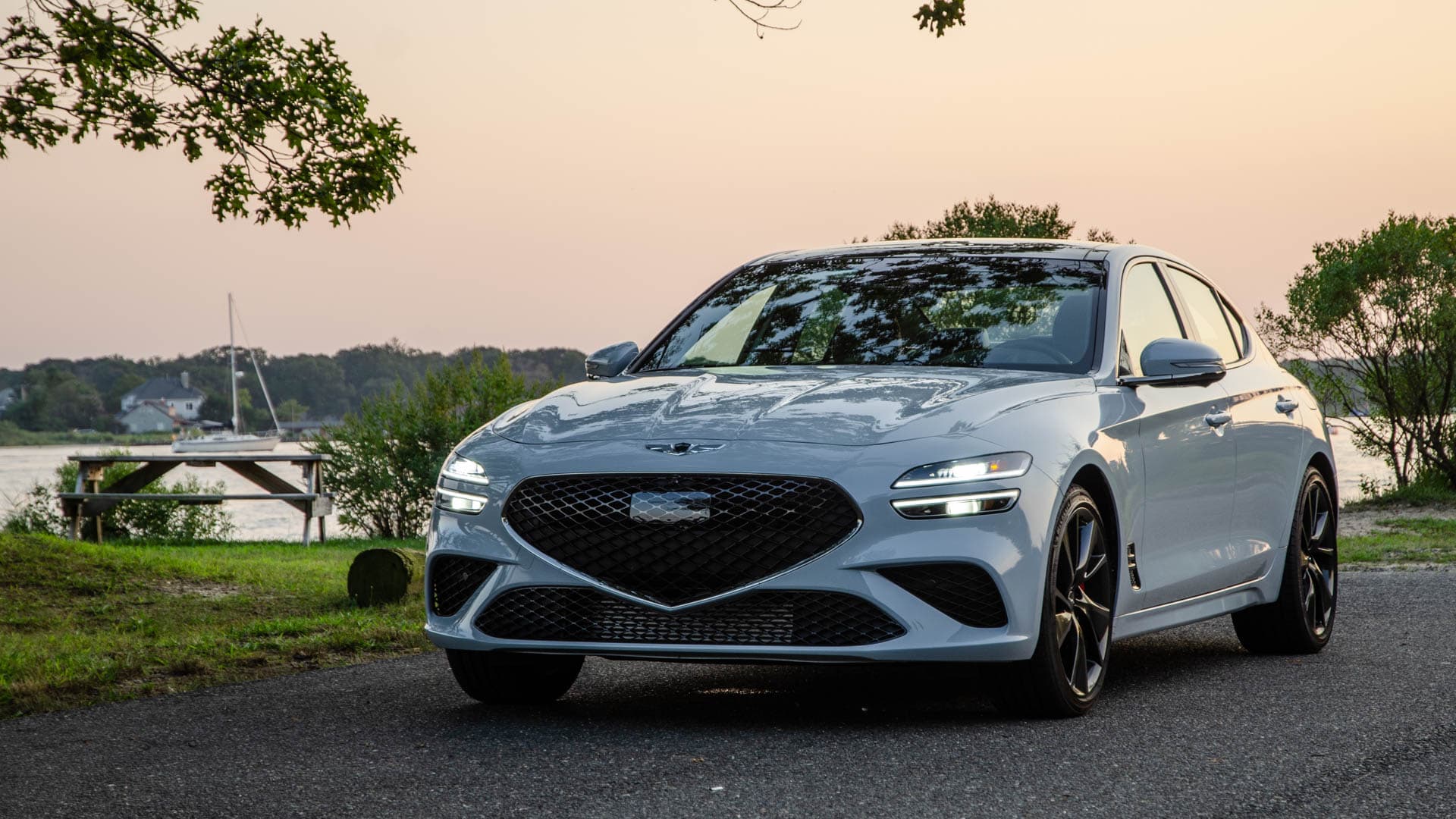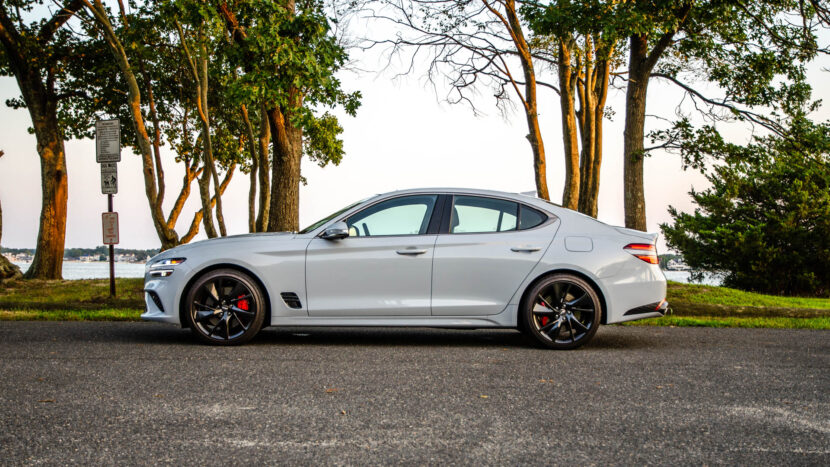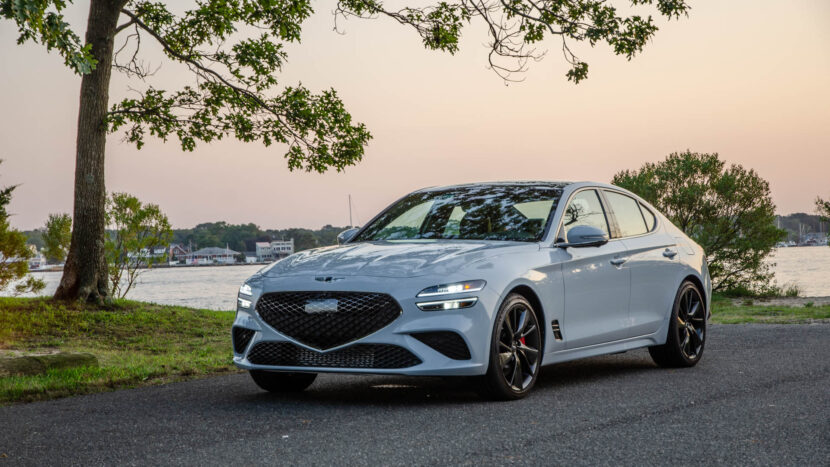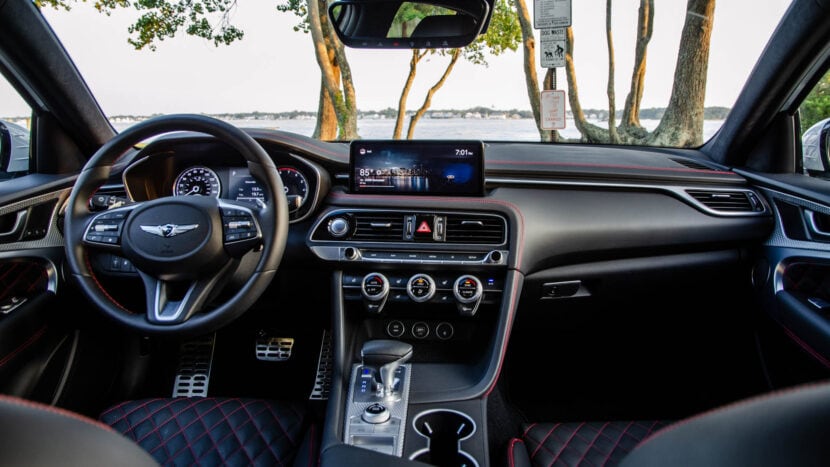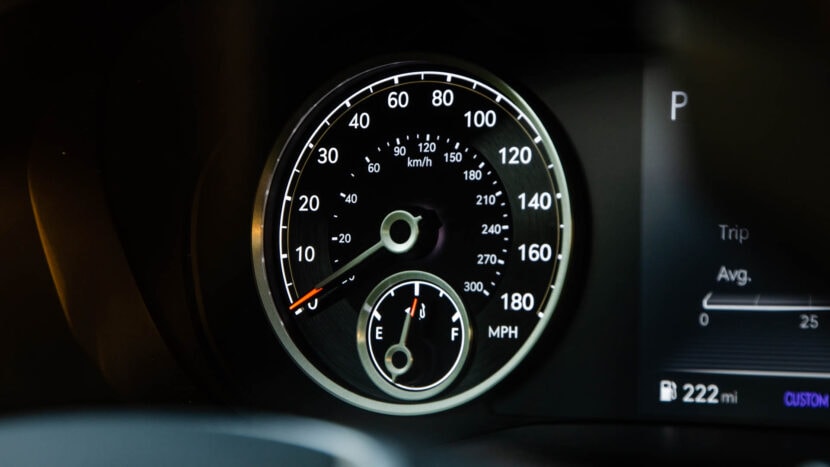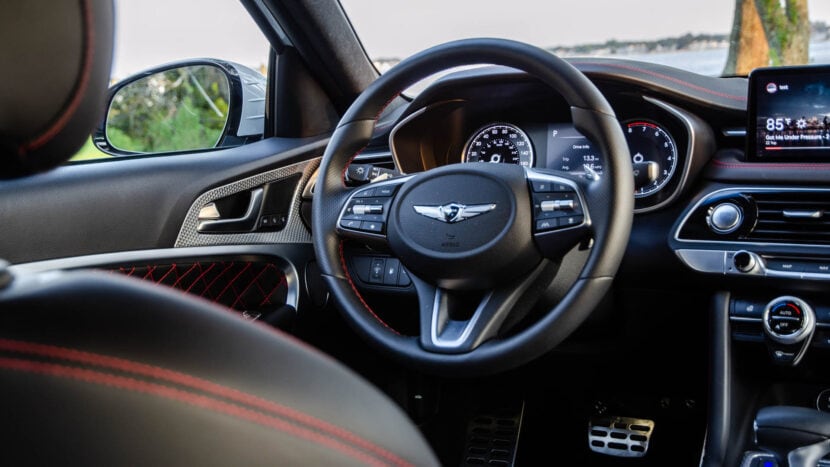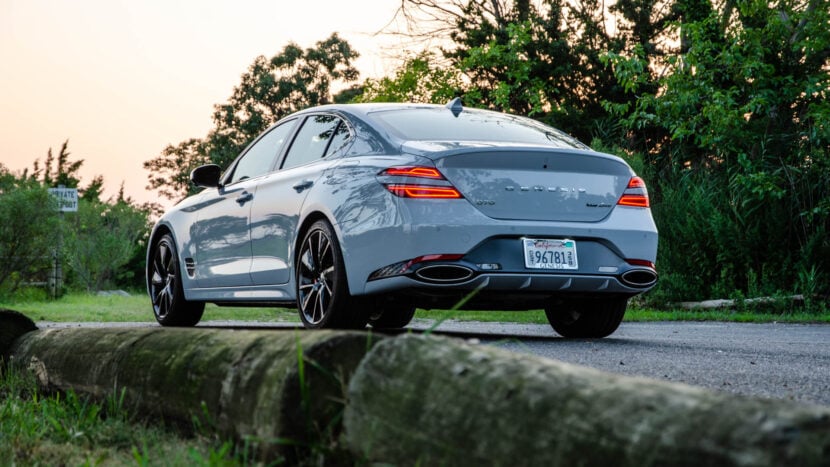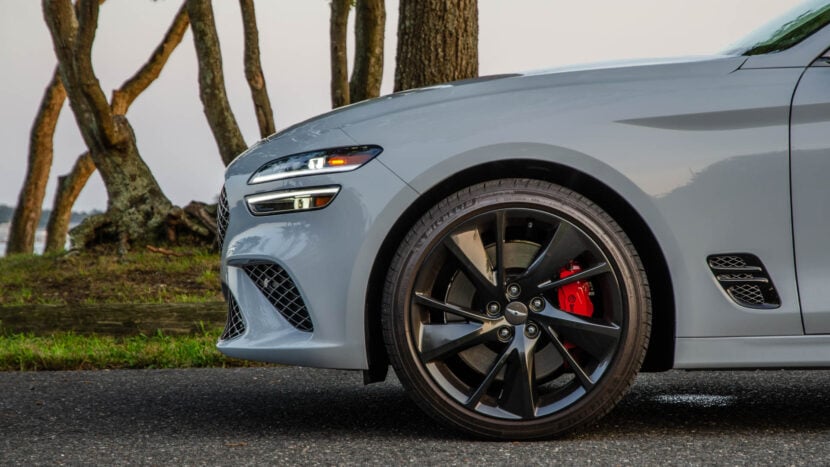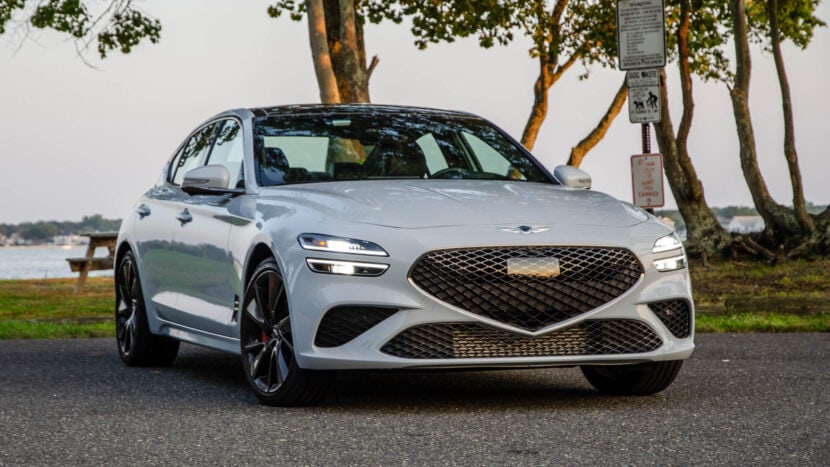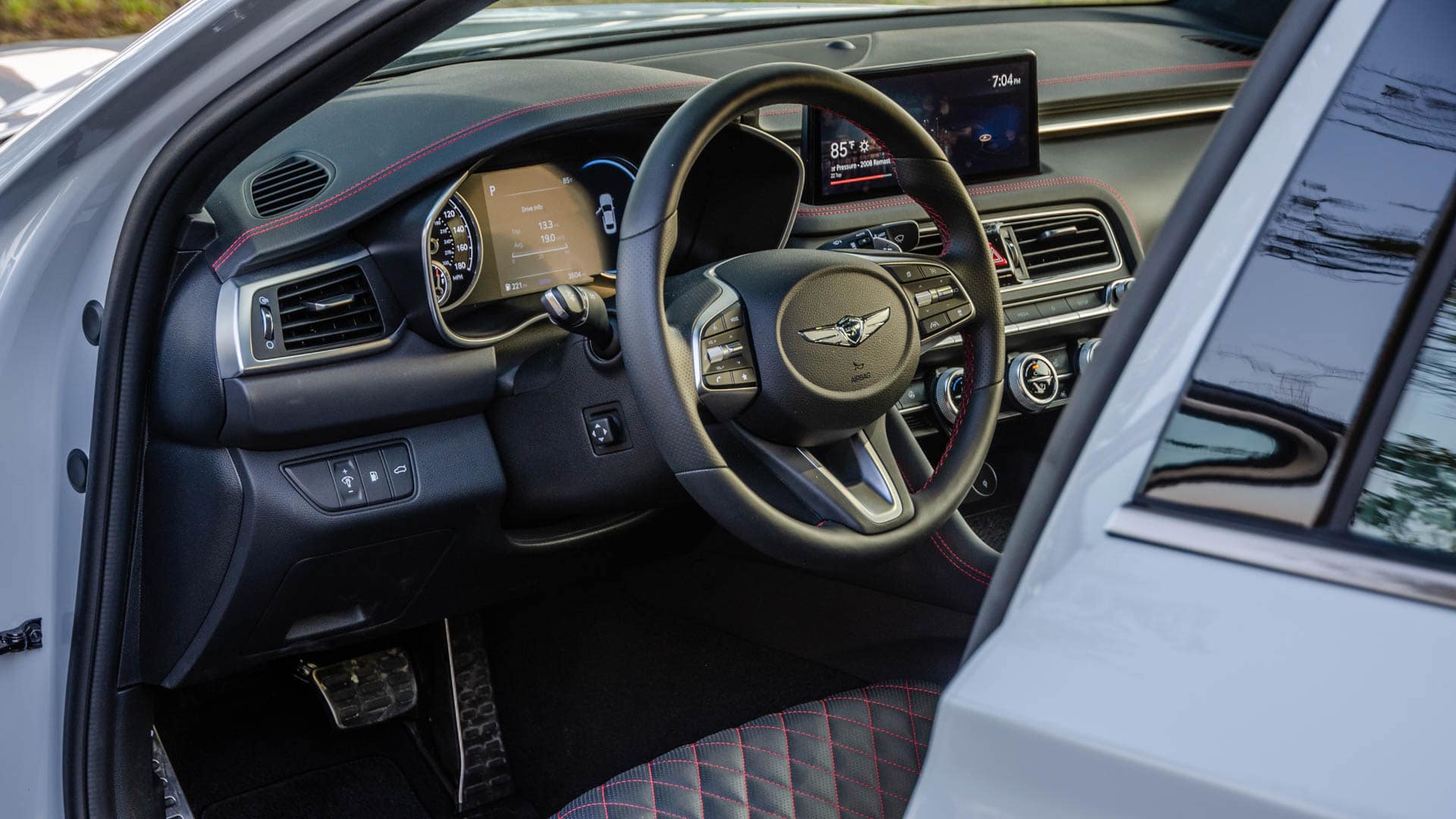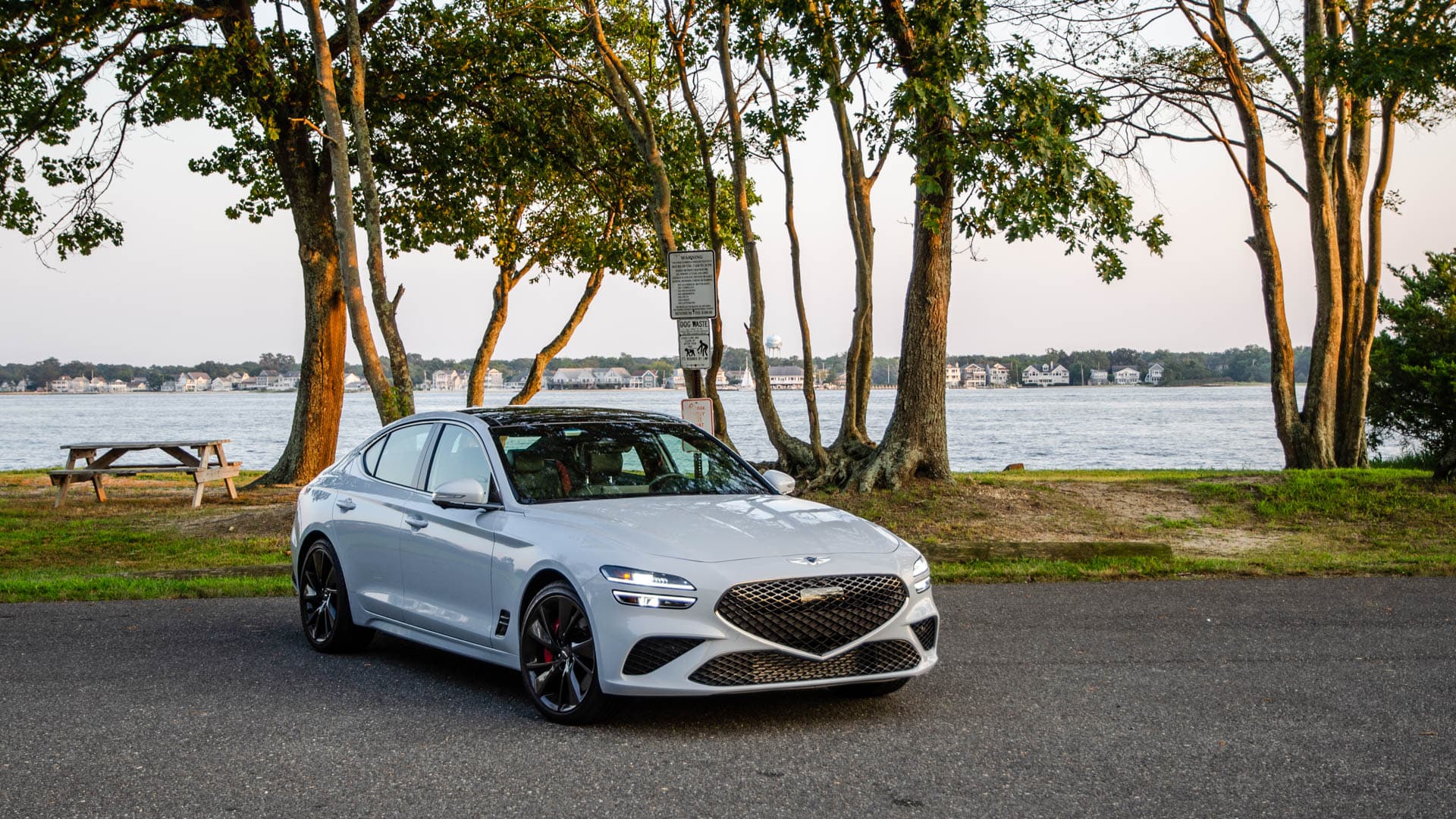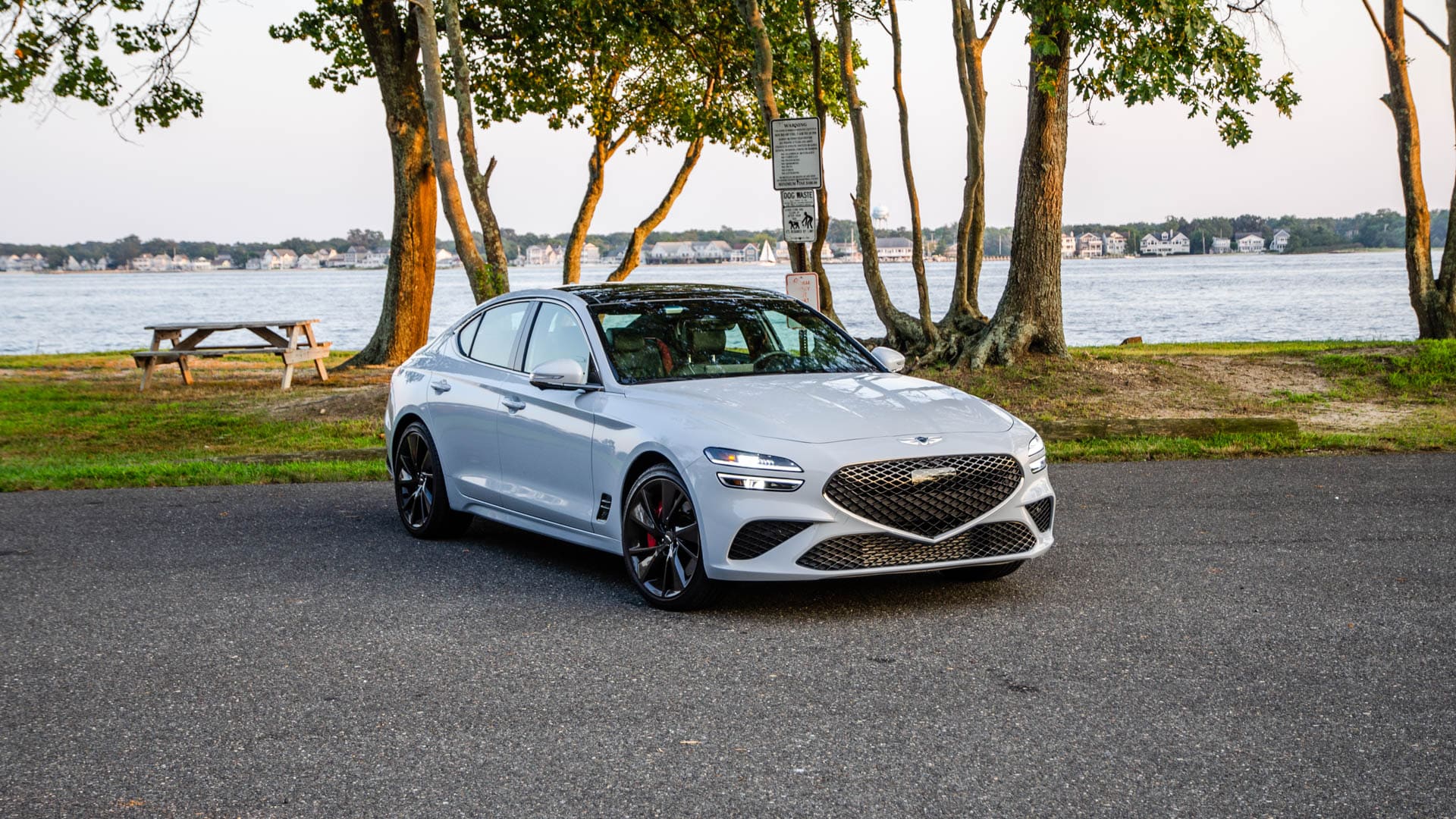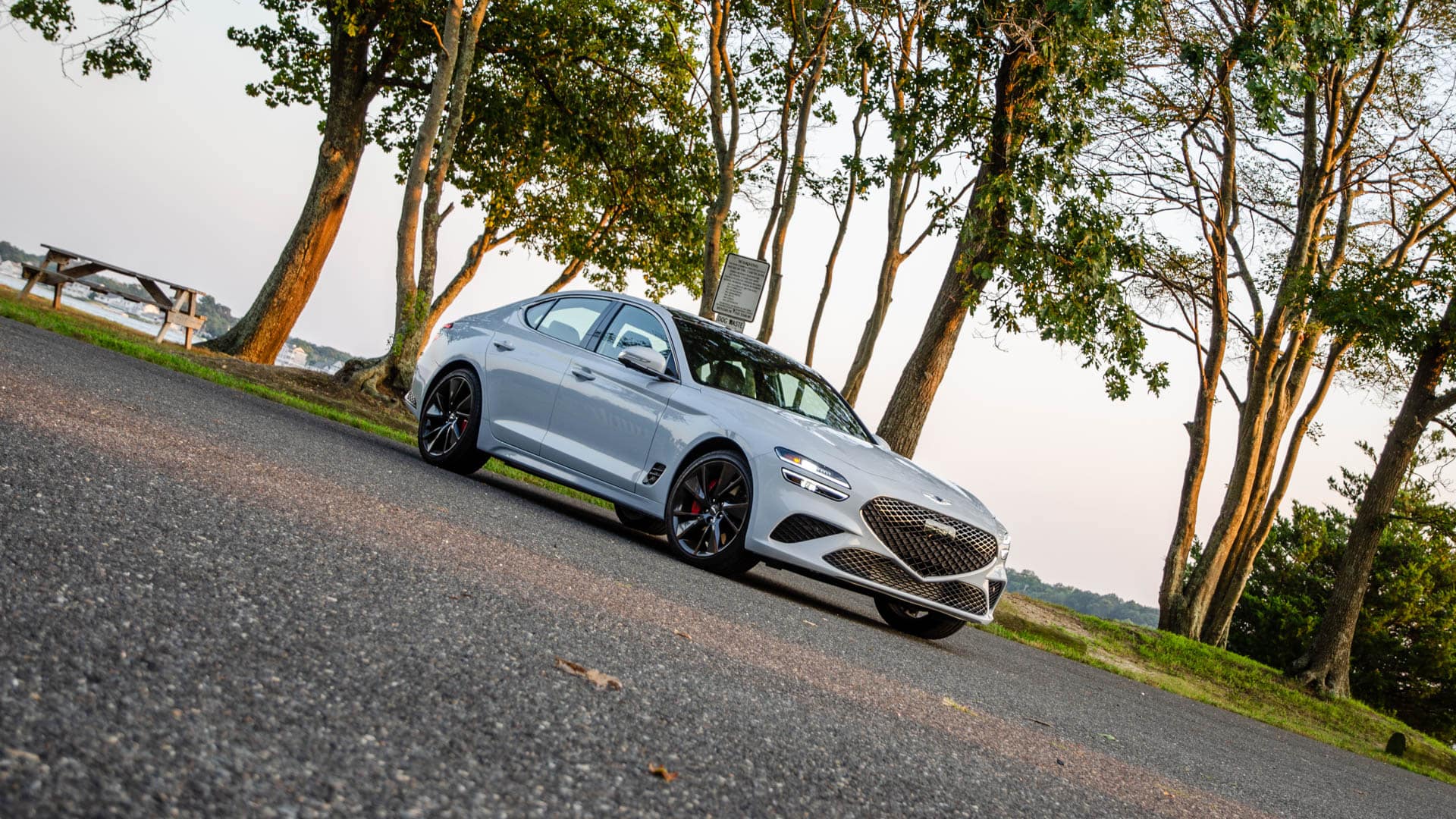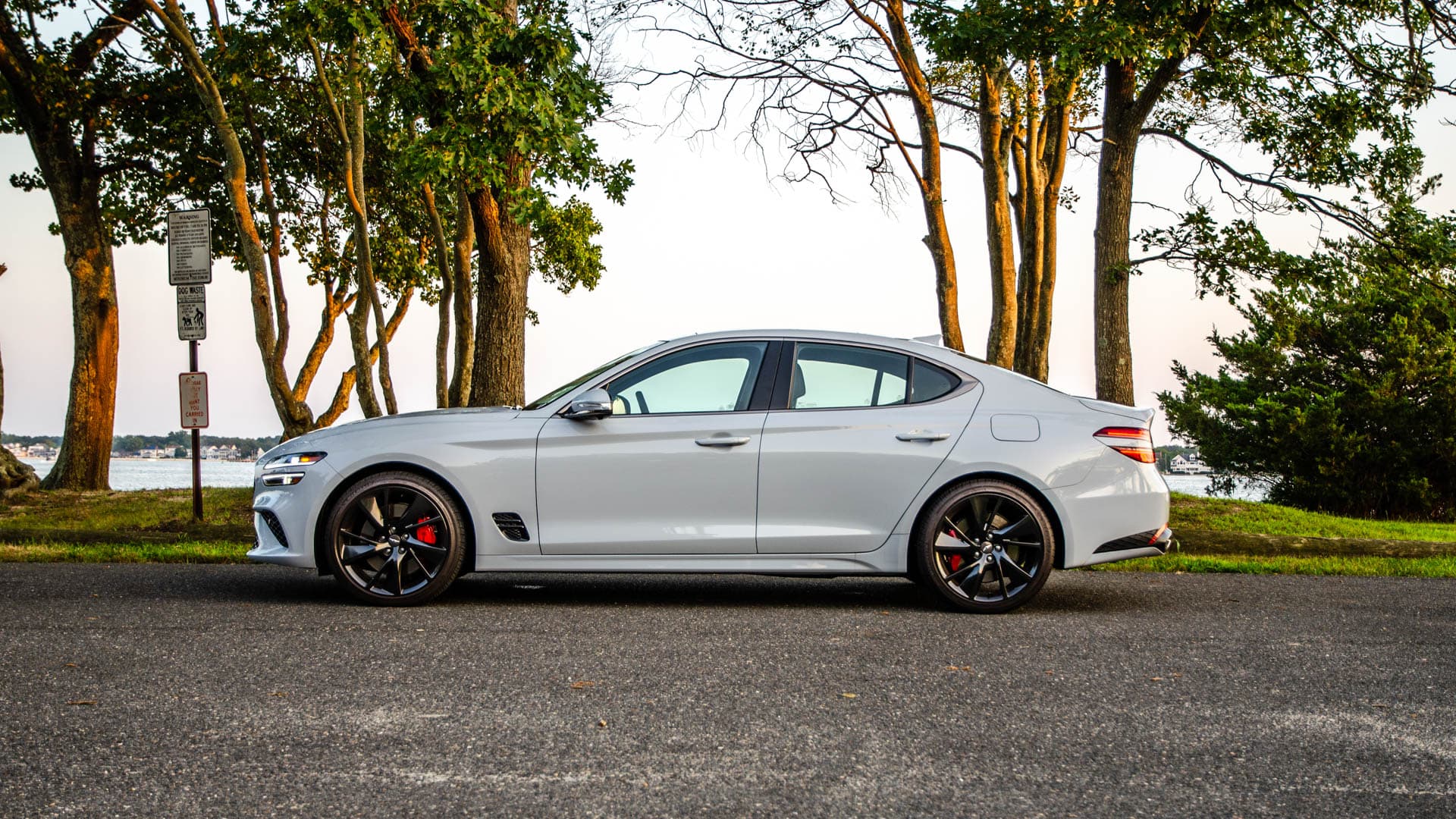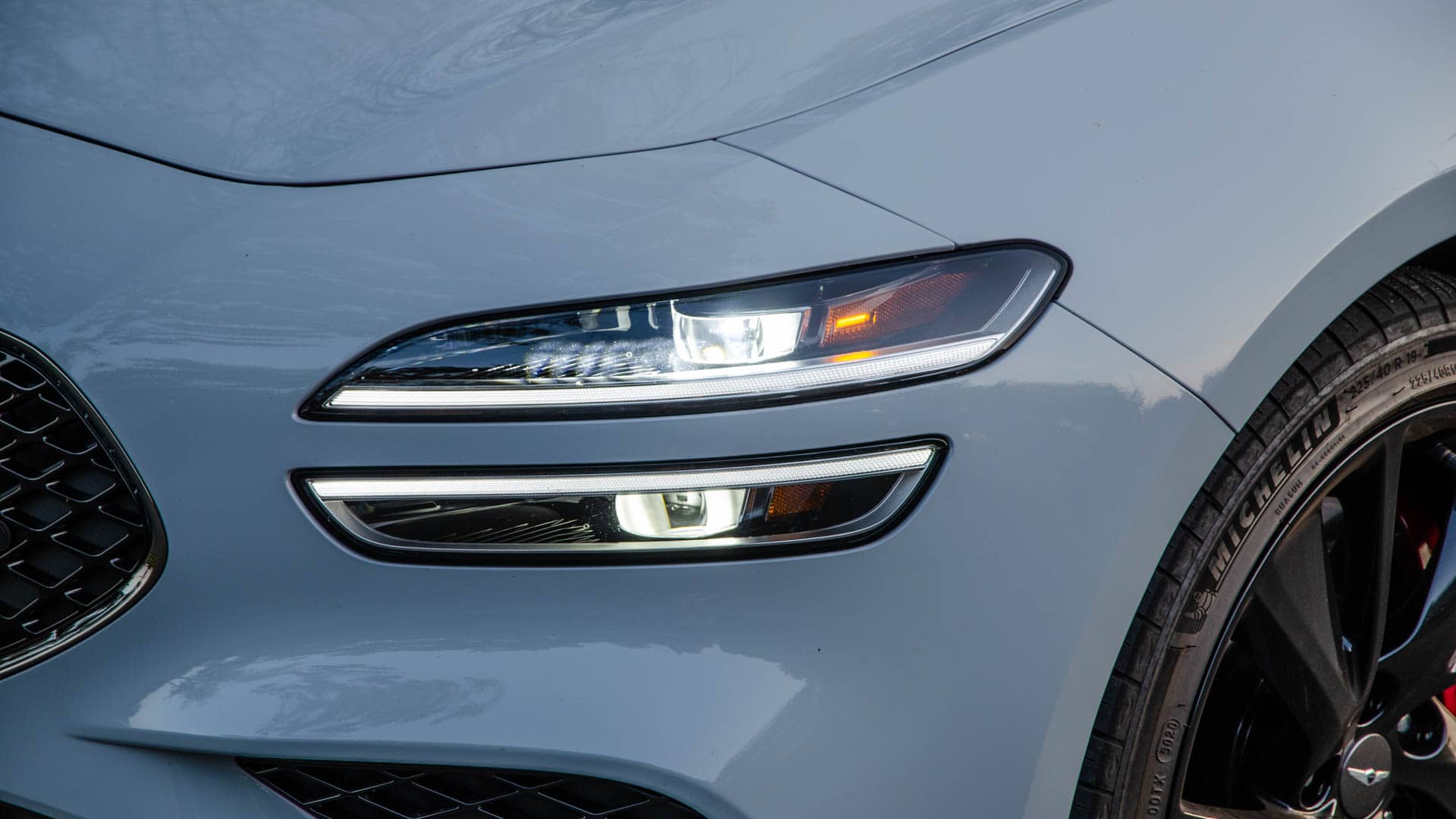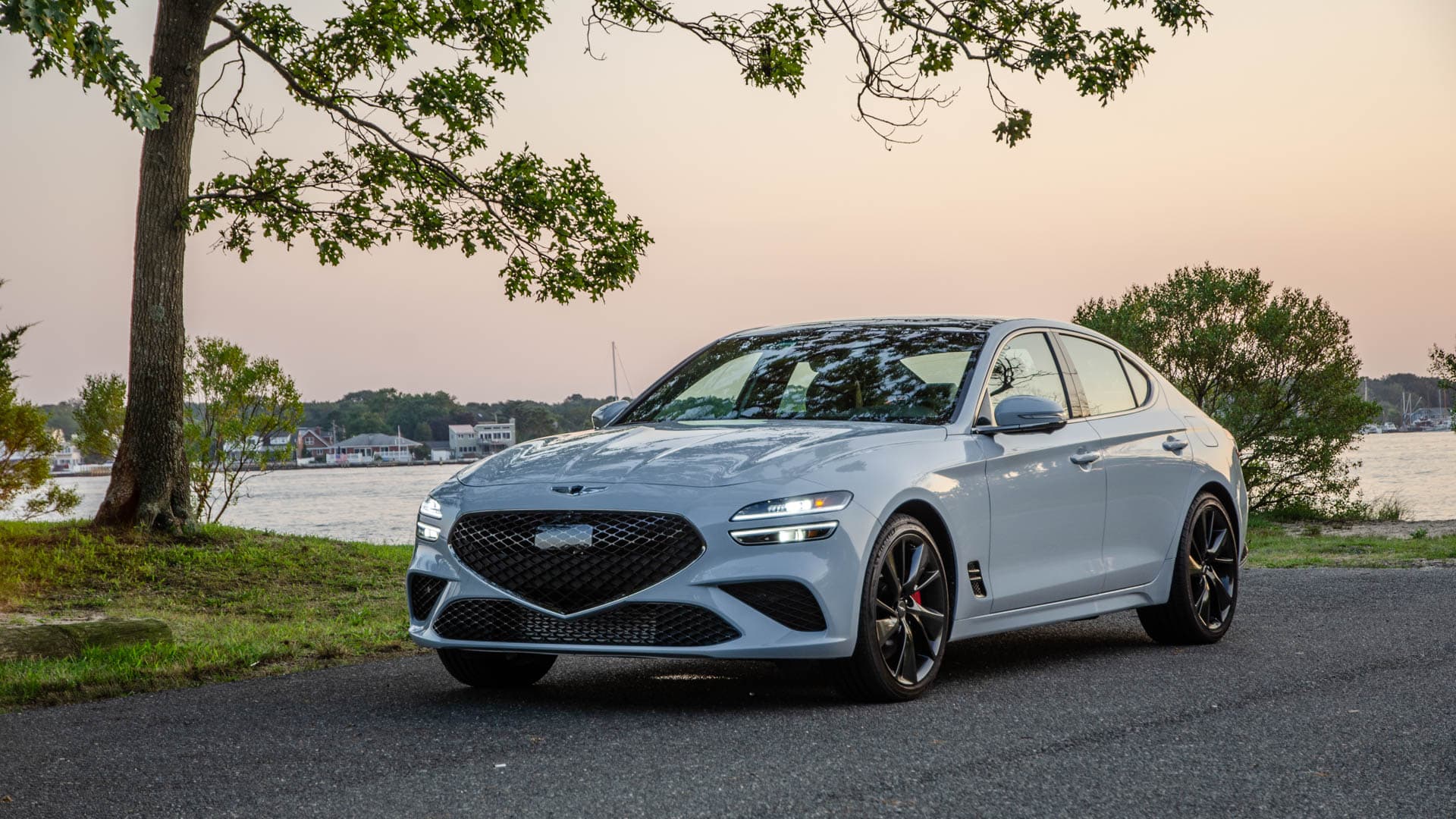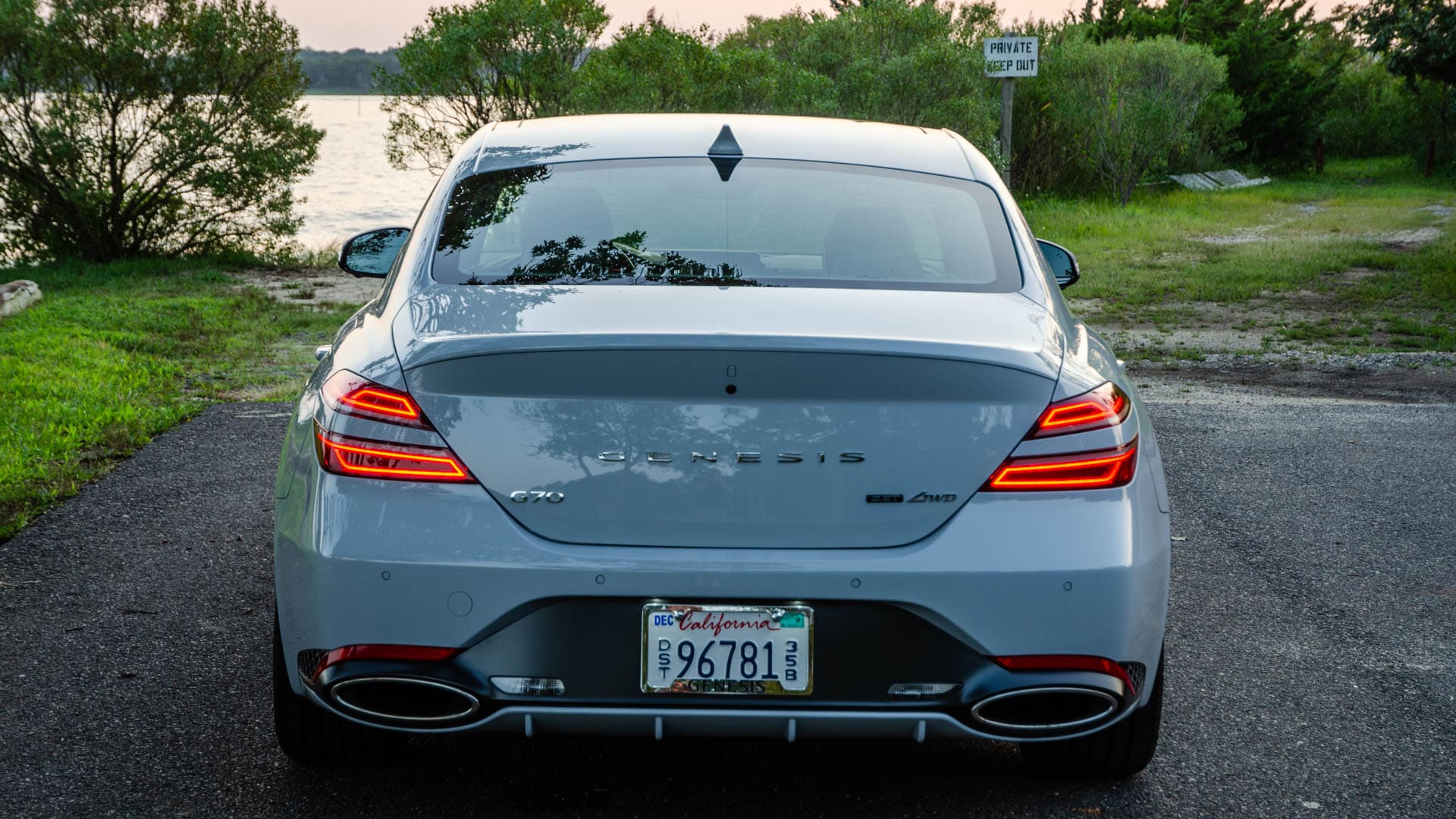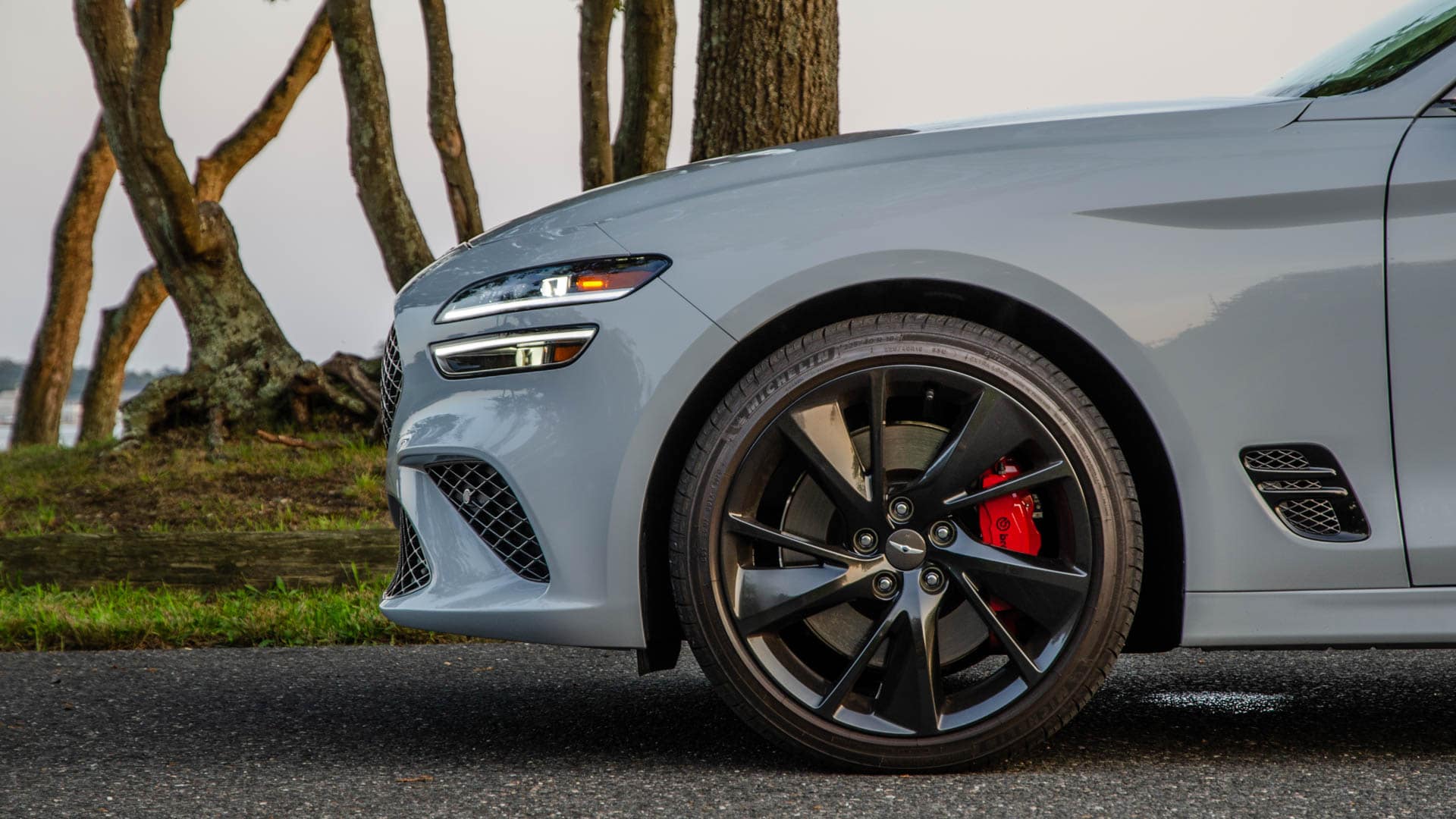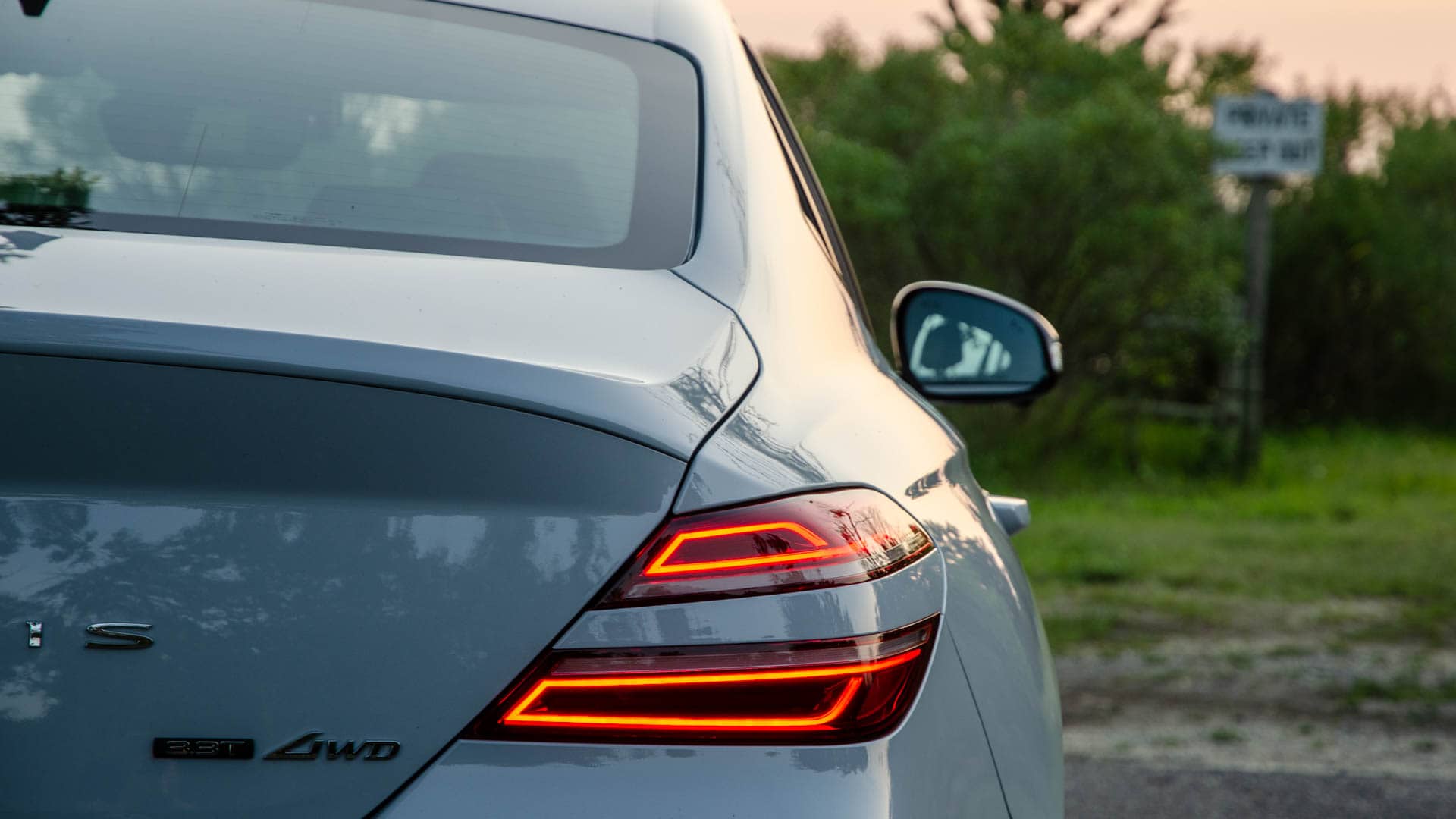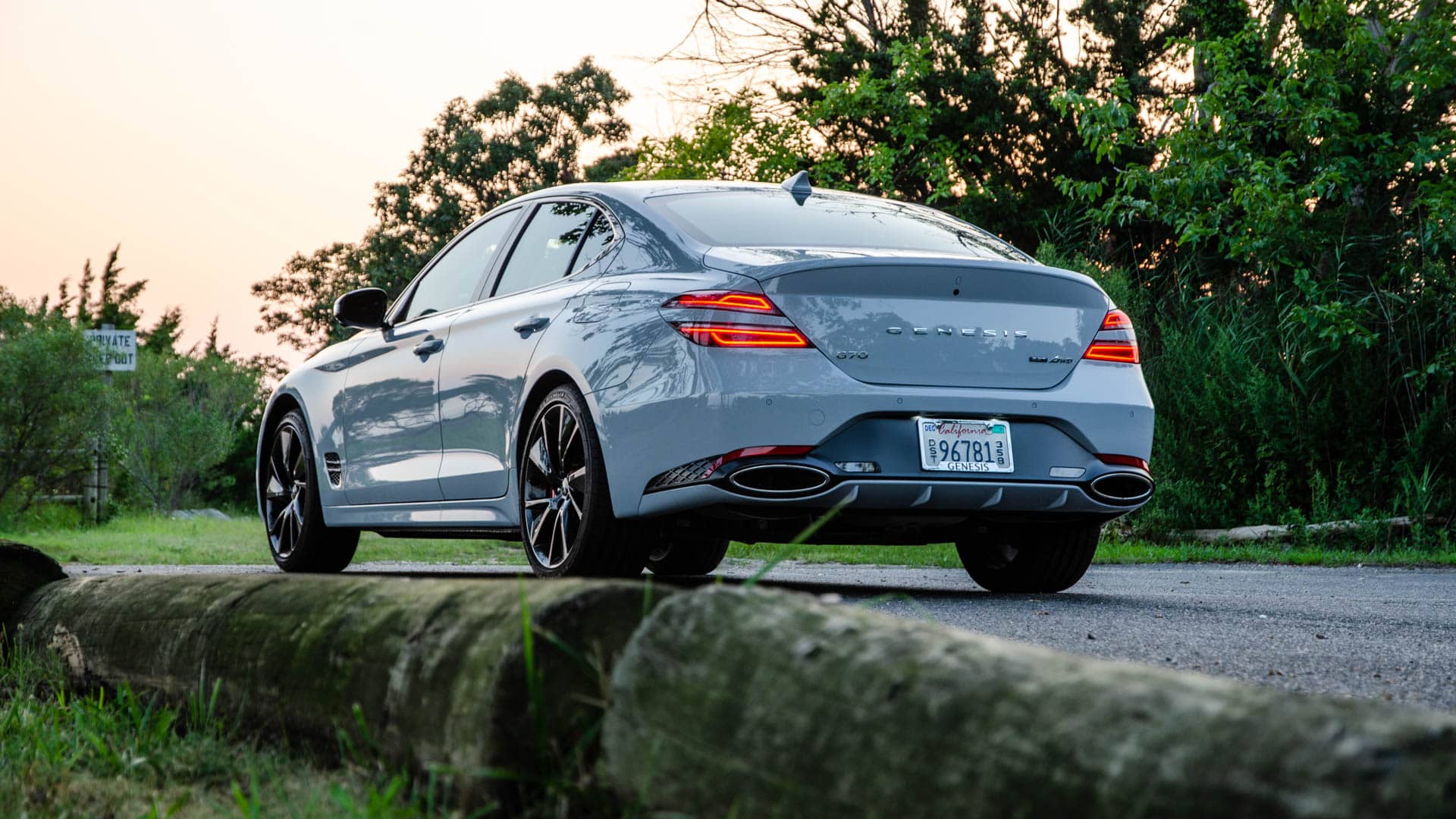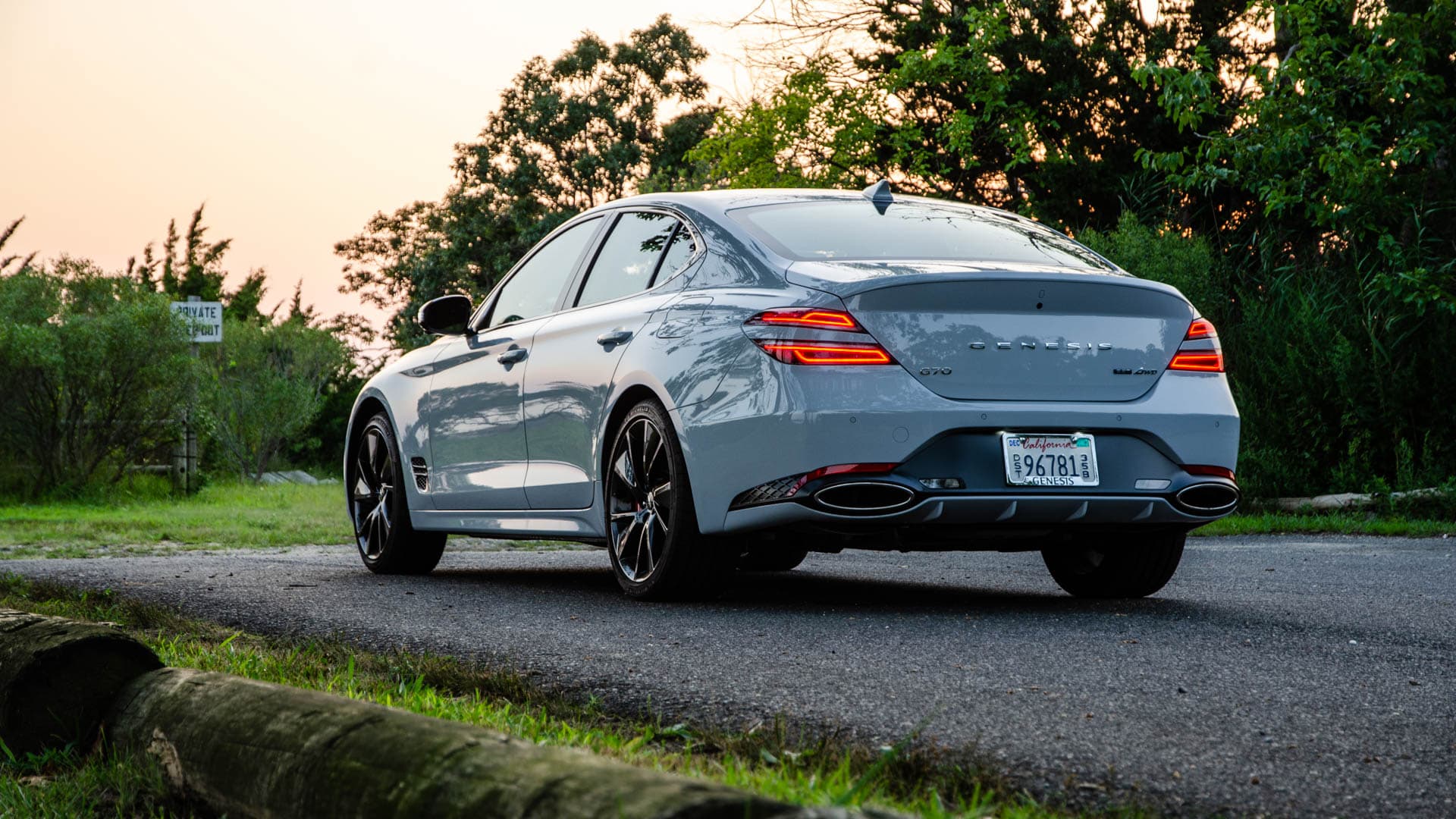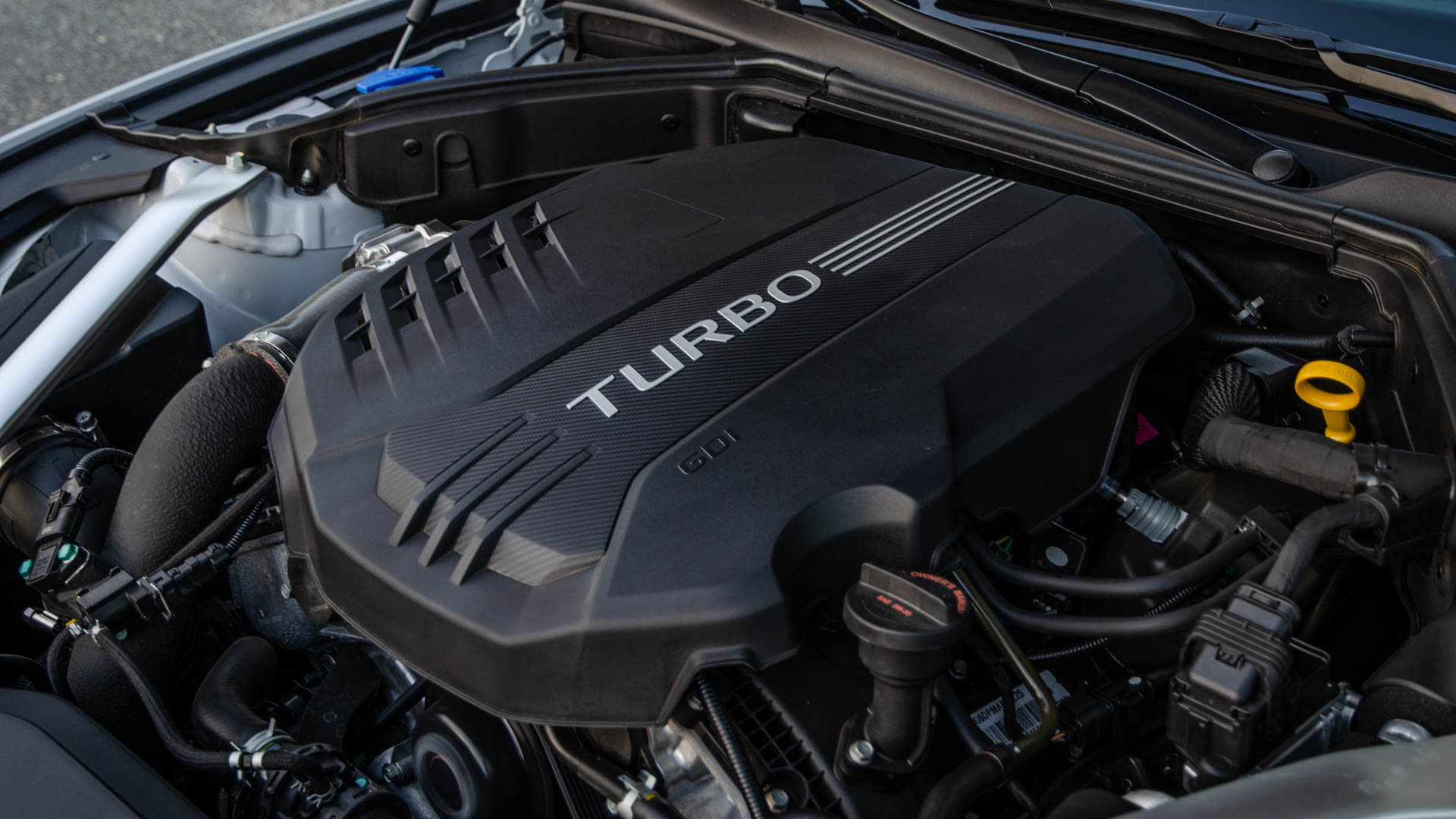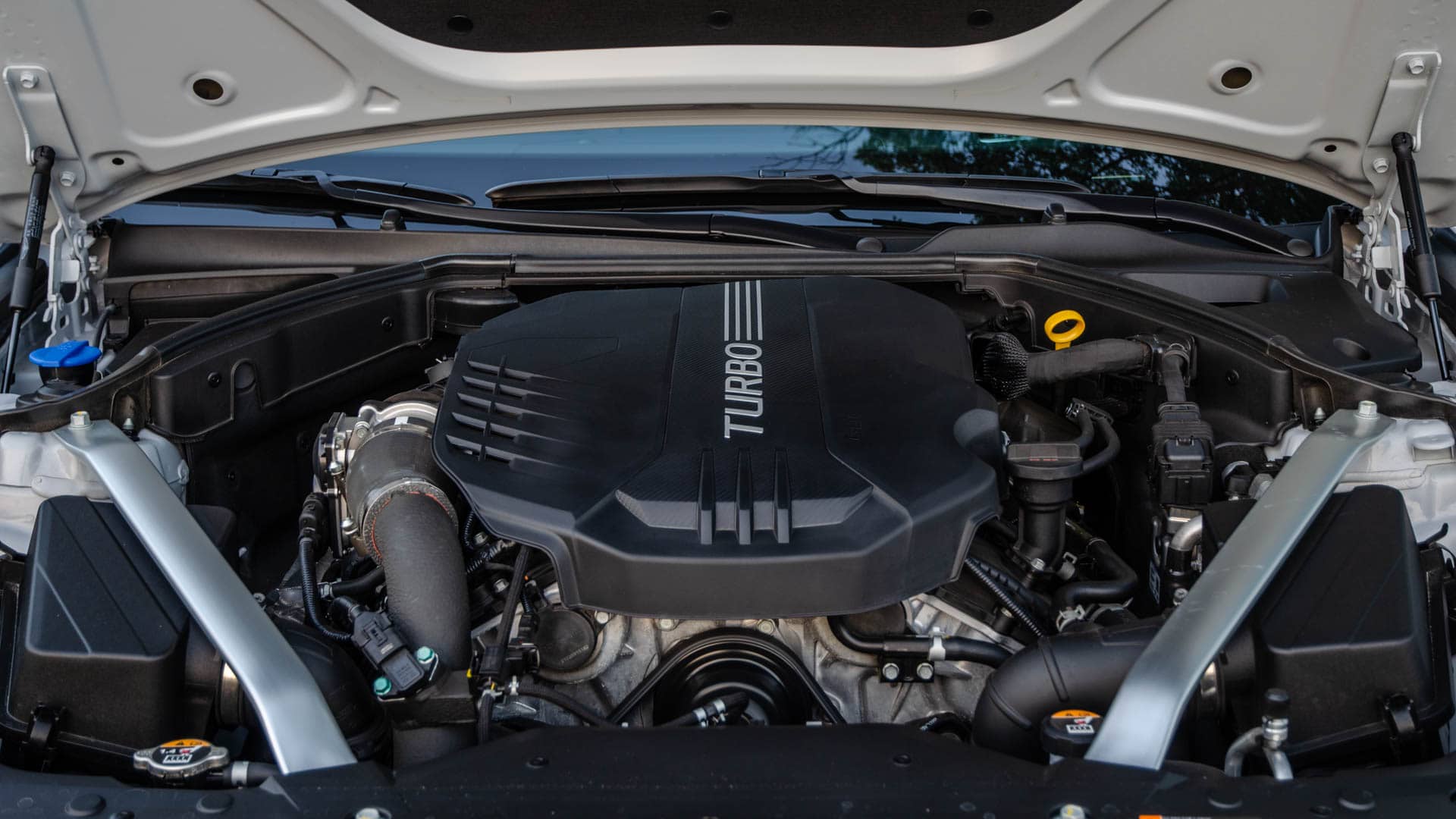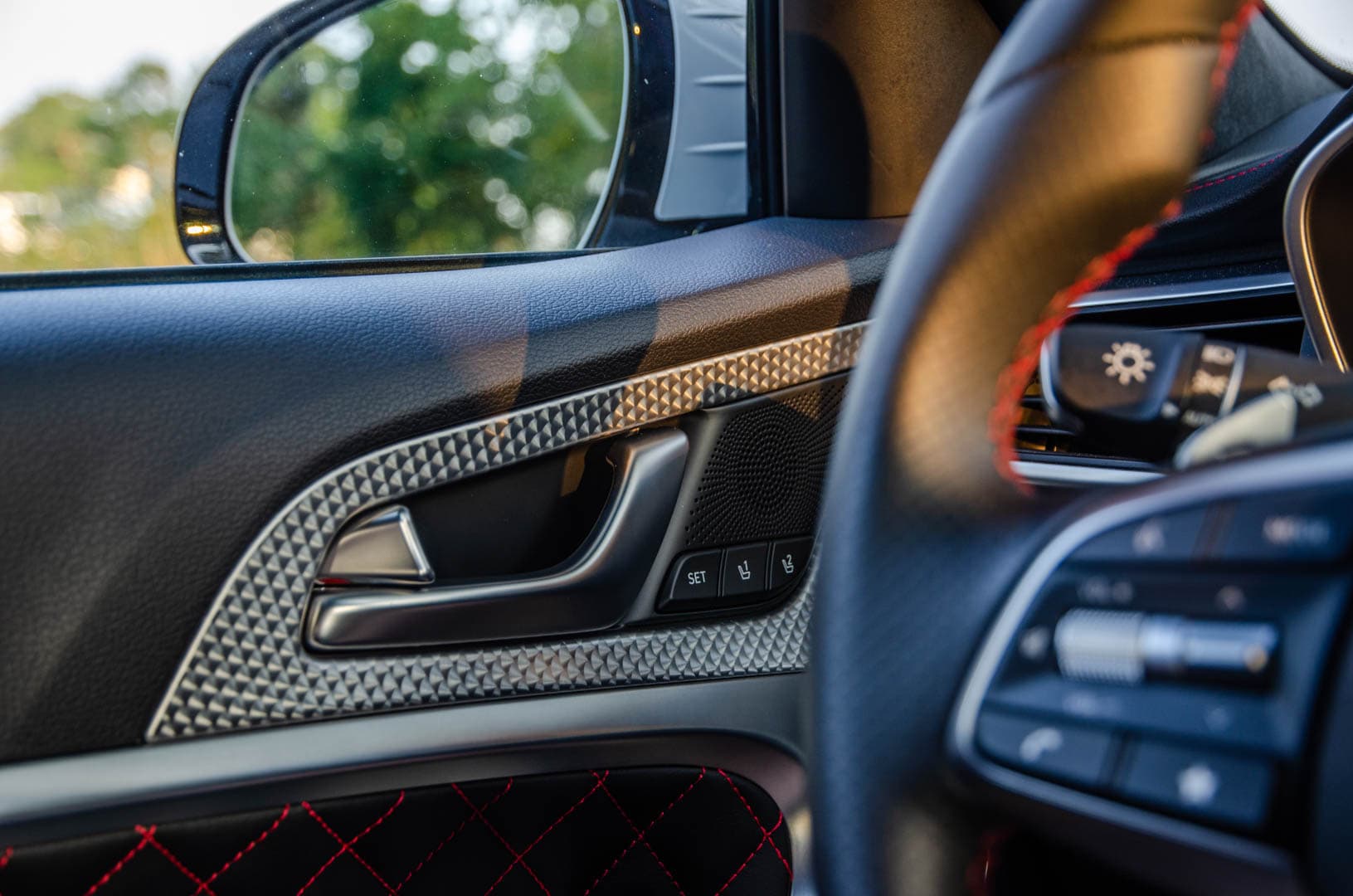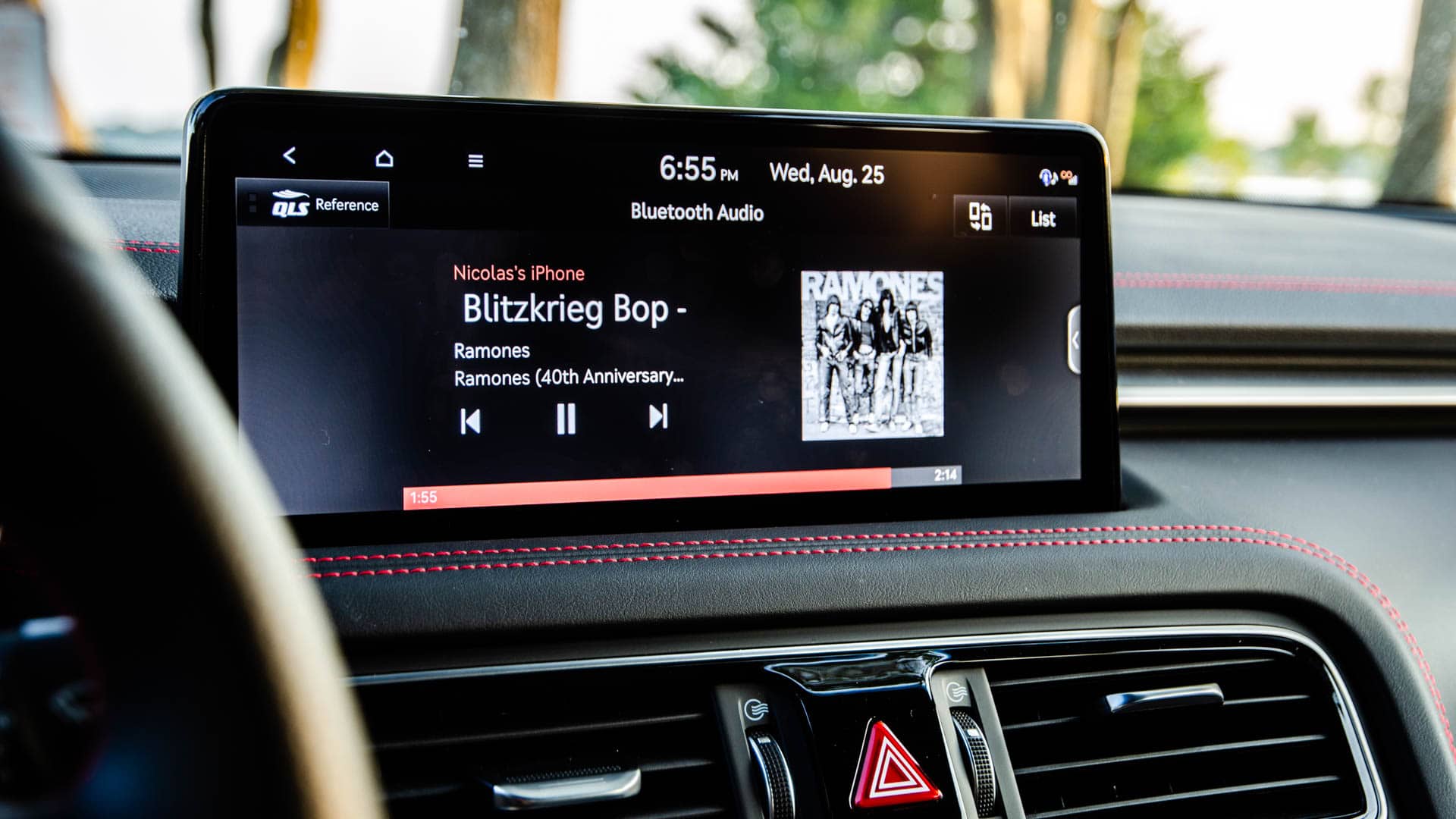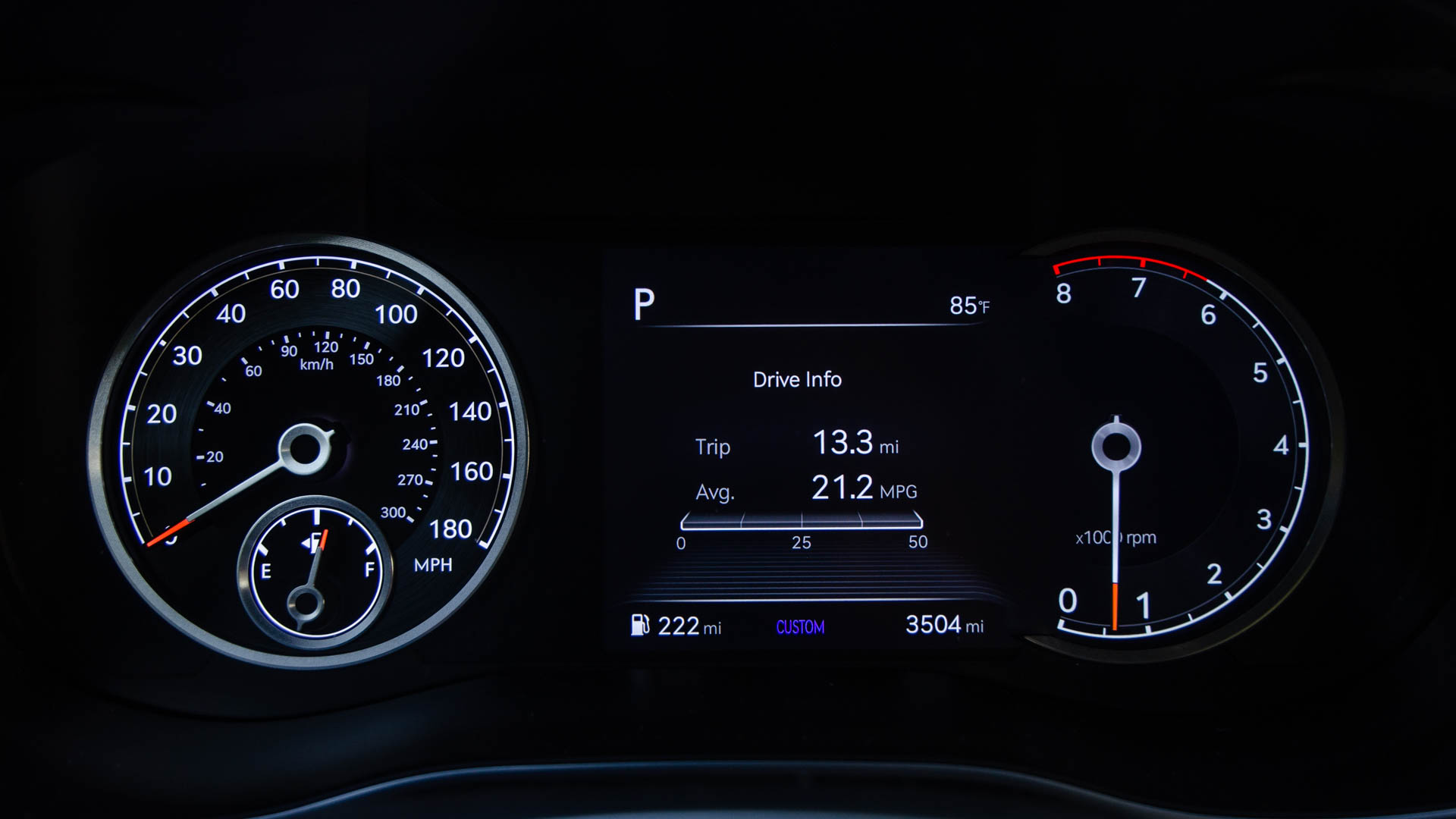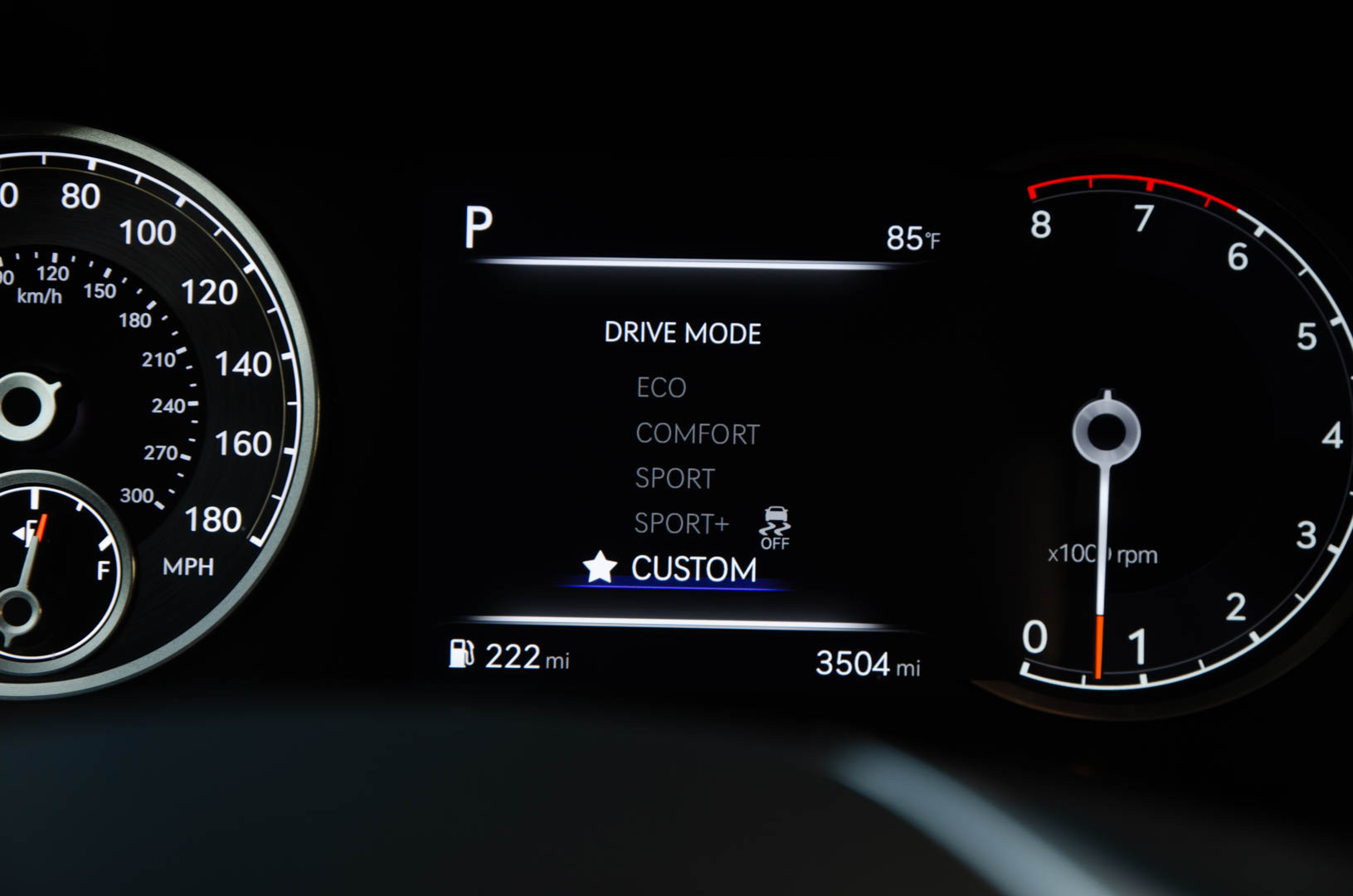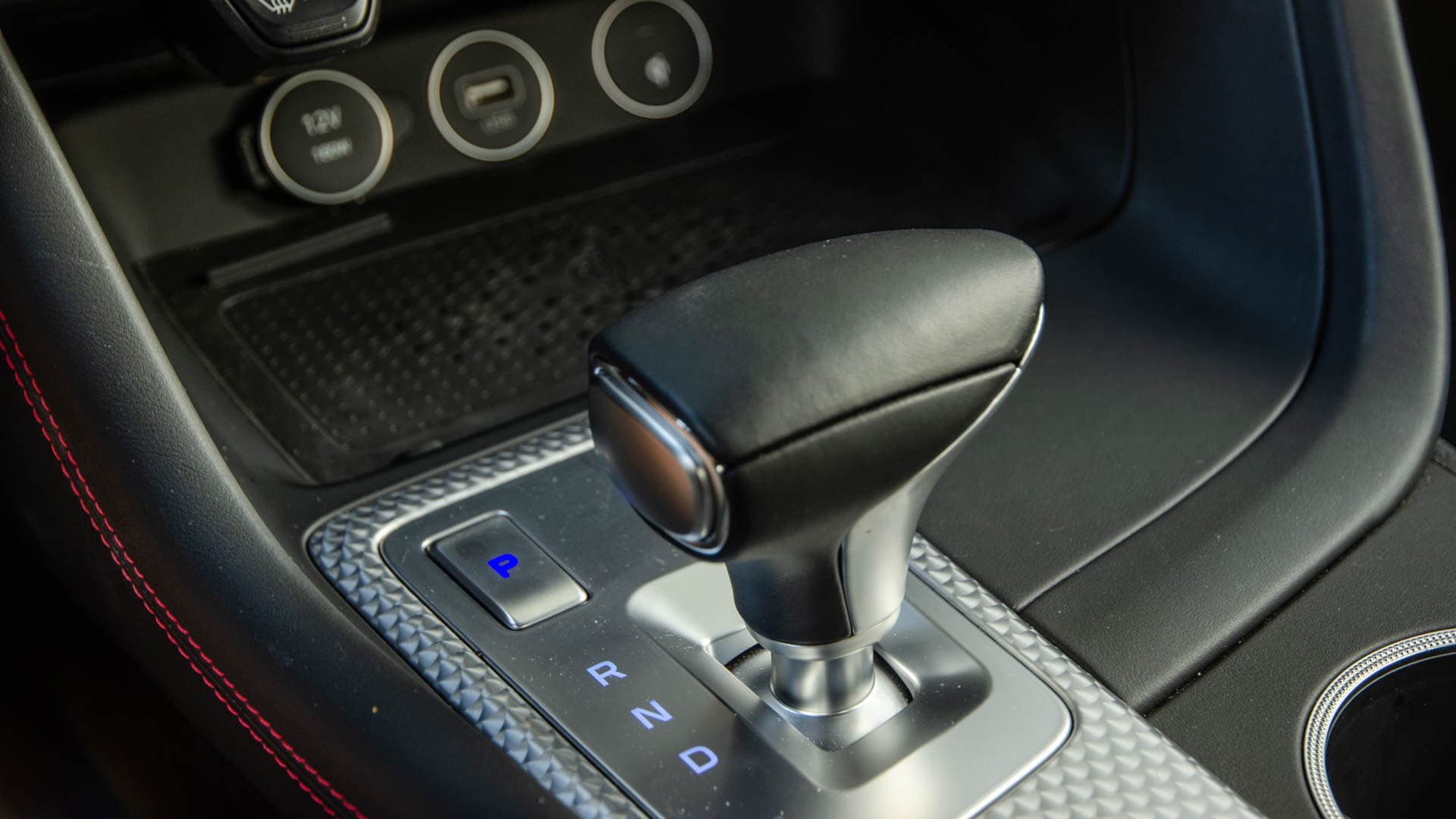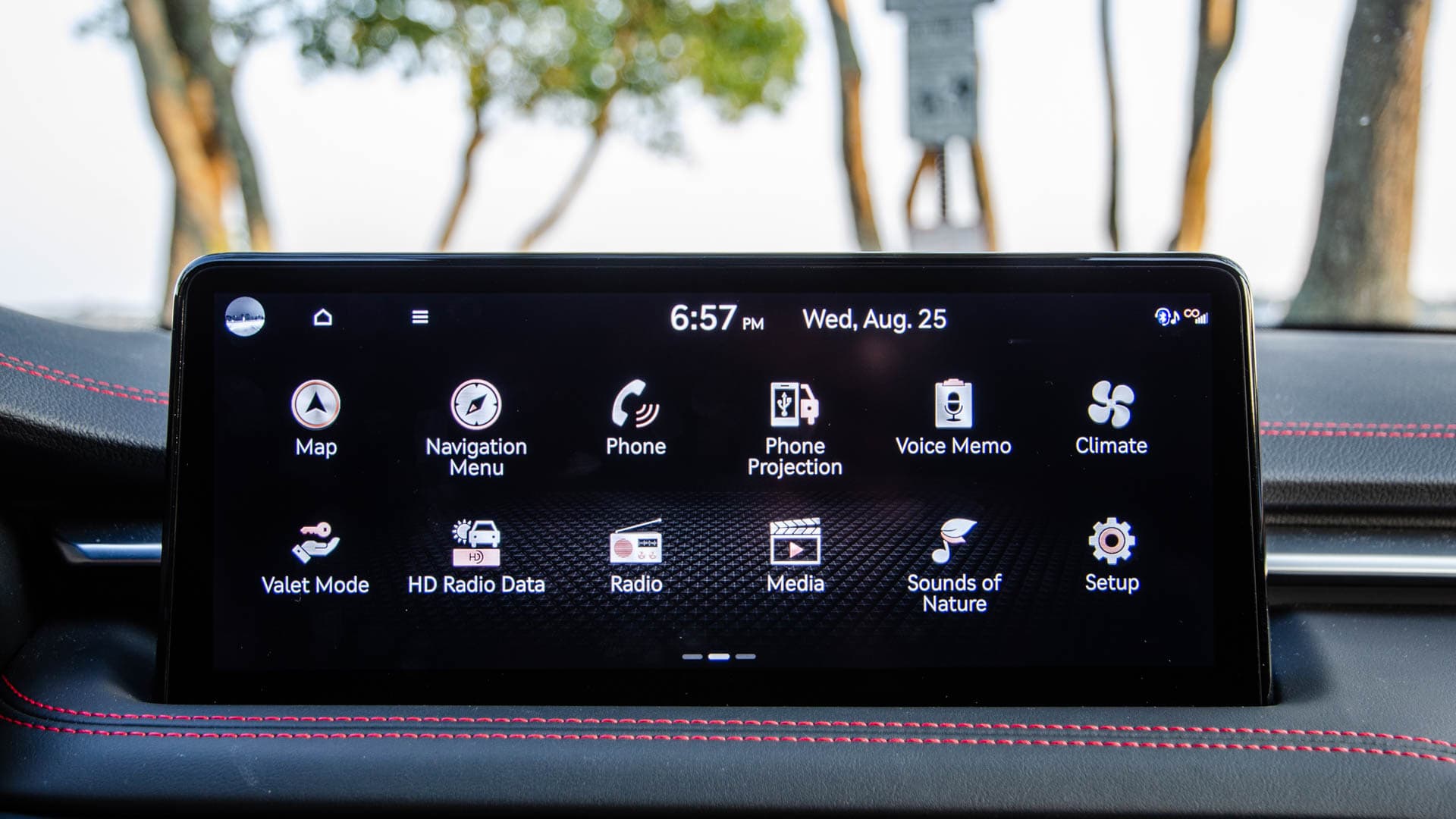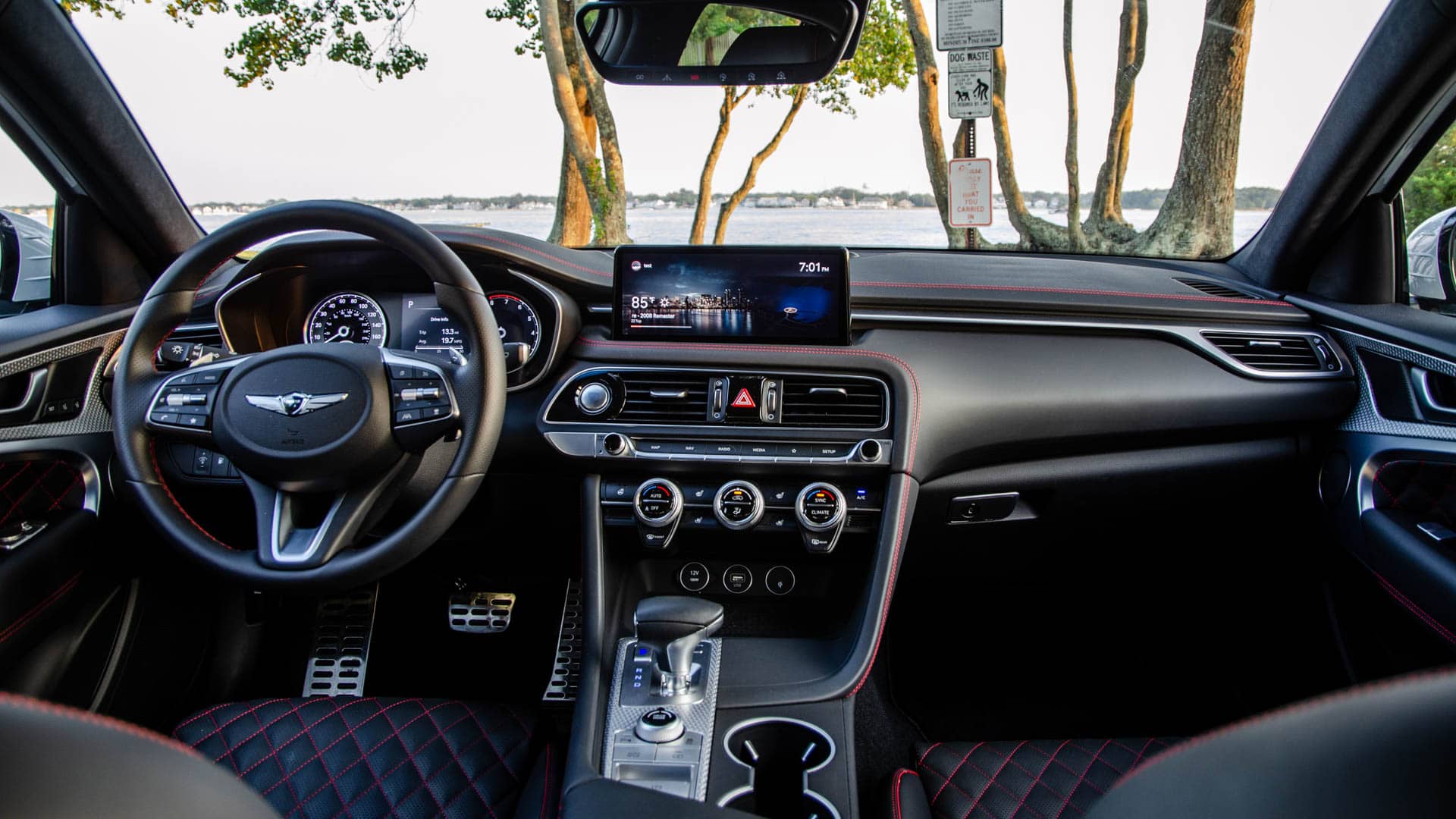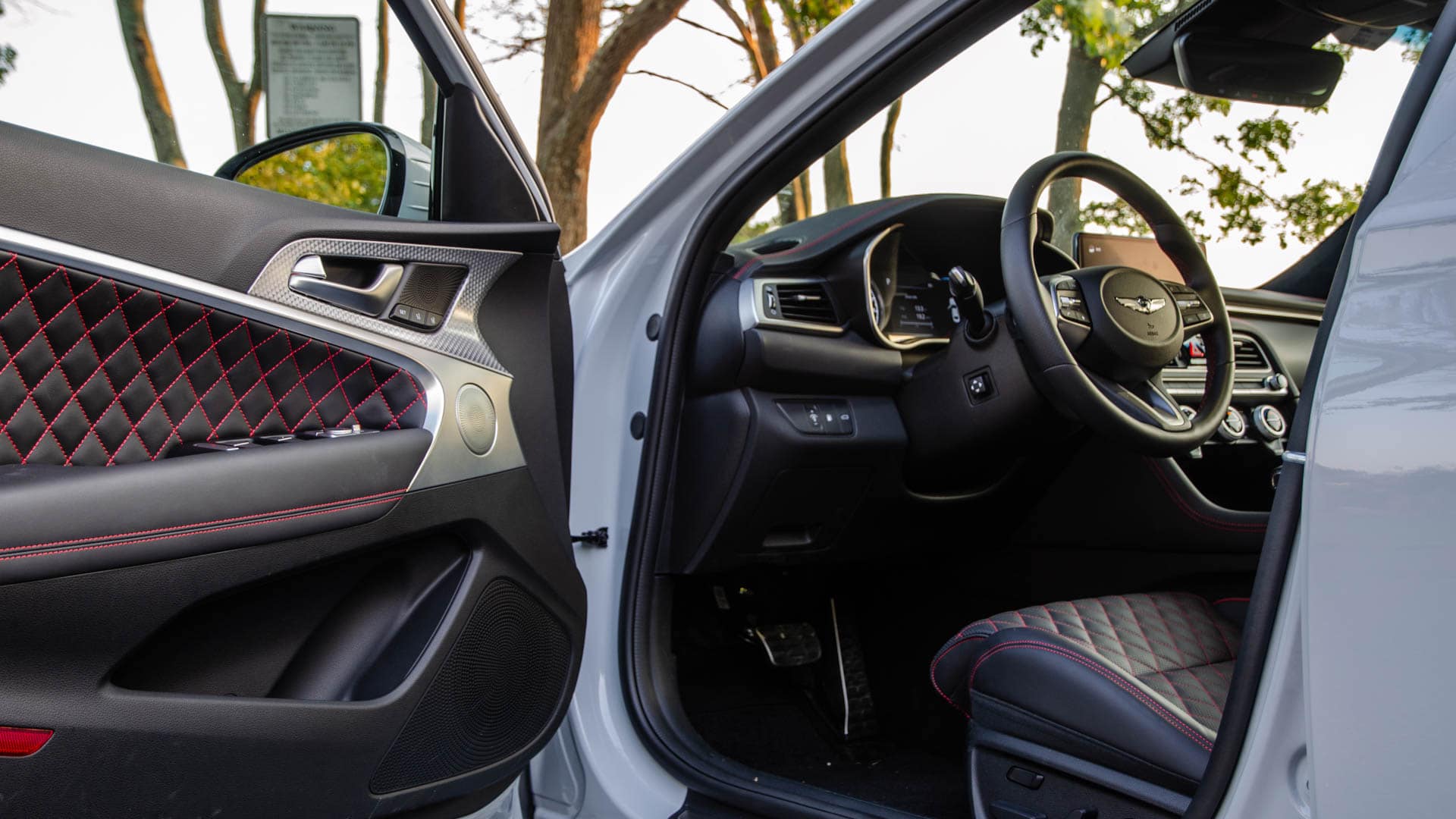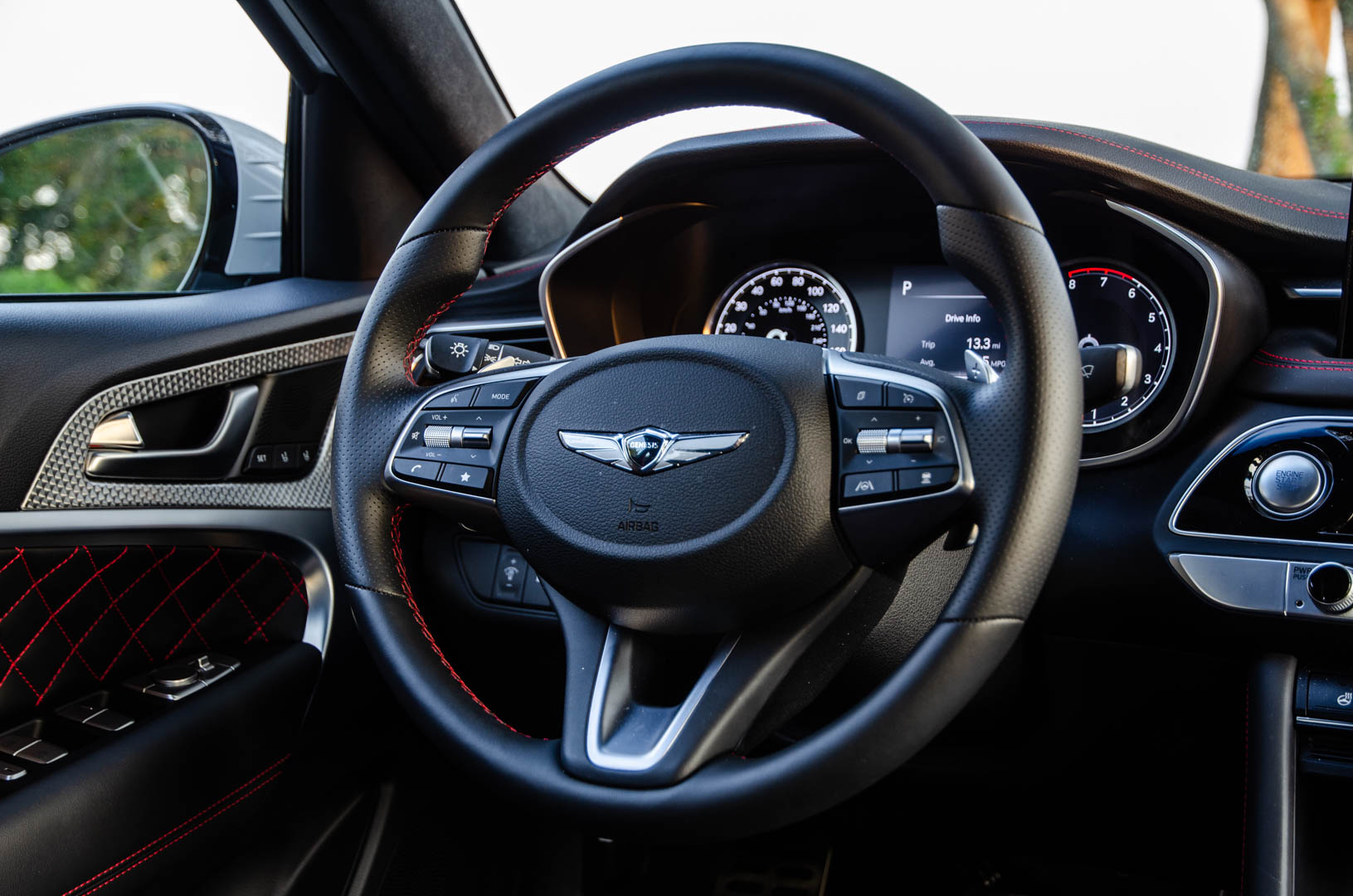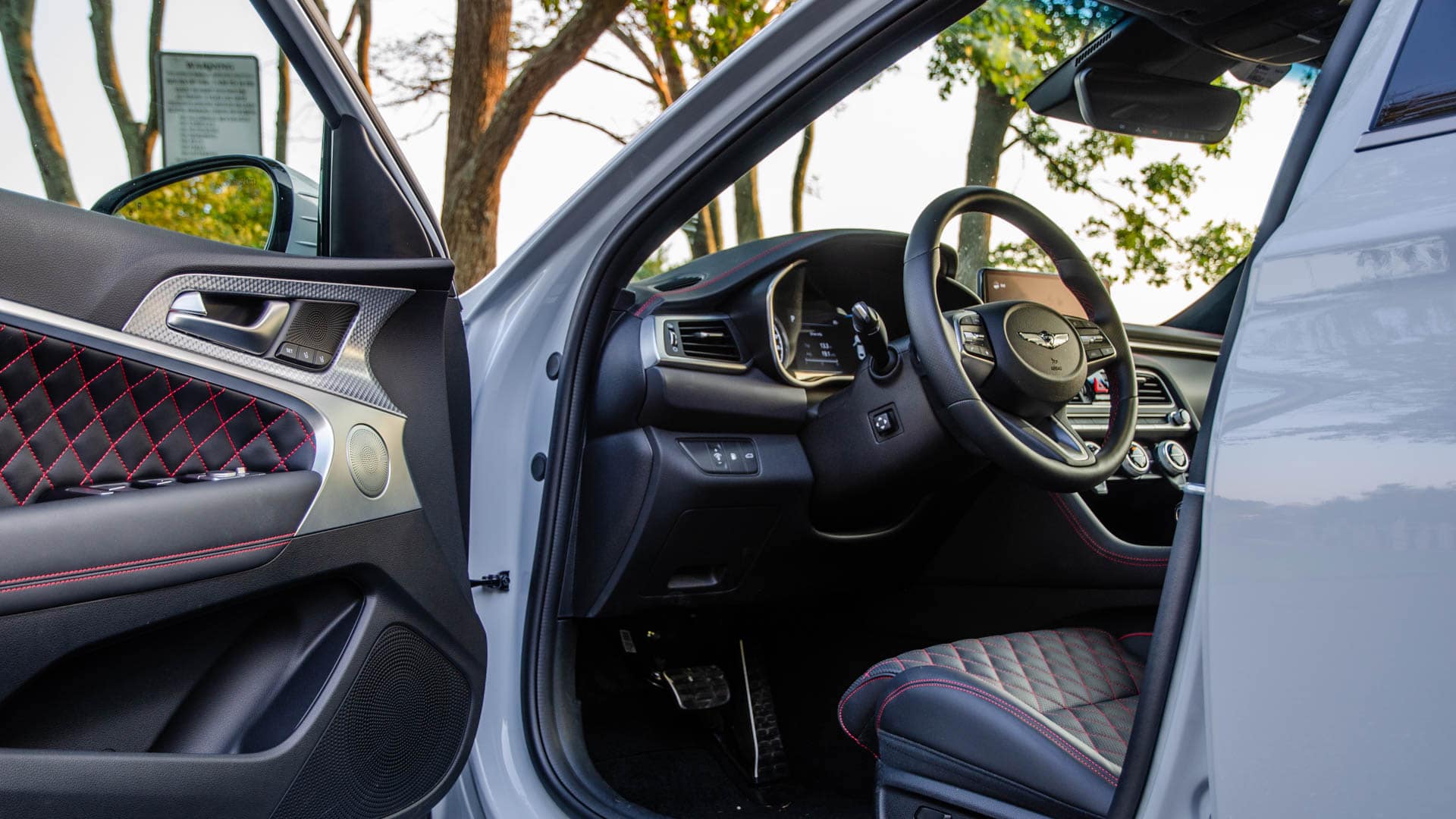When I first drove the 2020 Genesis G70 3.3T, I was optimistic. I’d heard good things, I liked what the Genesis brand was doing, and I thought it looked good on paper. When I drove it, I liked it but I didn’t love it. It had a few areas I thought could use improvement, if Genesis truly wanted to keep up with the best cars in the segment. However, I saw a lot of potential and came away feeling like Genesis was on the right track.
As it turns out, my small complaints must have been shared by a larger part of the car community and, thankfully, Genesis heard them. For 2022, the Genesis G70 has been updated; with new looks, new interior bits, and some improvements to its drive; and the result is a car that could be the very best in the segment.
Look Good, Feel Good
The pre-facelift Genesis G70 was a good looking car but it lacked a signature design. Since then, Genesis sort of rebranded its style with a split headlight and split taillight design. The look started on the G80 sedan, made its way to the GV80 SUV, and is now featured on the G70 and it looks really good. It’s not as achingly pretty as the Alfa Romeo Giulia, as premium looking as the Mercedes-Benz C-Class, or as handsome as the G20 3 Series. However, it’s a smart looking design with styling that is now instantly recognizable as a Genesis. I like it quite a bit.
Up front, Genesis’ massive grille might draw some criticism but I actually think it works. I can hear the complaints of my hypocrisy already, as I’m constantly slamming BMW for its massive grilles. However, unlike BMW, Genesis actually seems to have cohesively designed the large grille into the rest of the front end, rather than just slap a big grille onto an existing design. Also, the Genesis’ blingy, shiny grille is kinda fun, in a tongue-in-cheek sorta way.
The split headlights are nice, though, and the front air intakes lend a sporty, purposeful look. Same goes for the taillights. The actual taillight housings themselves aren’t actually much different from the pre-facelift car but the split design inside them is sharp. My test car was the Genesis G70 3.3T AWD Sport Prestige, so it came with 19″ five-spoke black wheels, which looked good, even though the best wheels are the 19″ lightweight wheels on the Launch Edition cars.
Genesis made a couple minor improvements to the cabin but they make a world of a difference. For starters, the old gauge cluster was replaced with the same one as seen in the G80 and GV80, which is good news, as the newer Genesis dials are absolutely lovely. The speedometer is analog and one of the prettiest analog dials I’ve seen on a modern car. It looks like it could be a Swiss watch. While the tach is a digital version of the same analog dial. Why make it digital? Because it turns into a side-view camera when you flick a turn signal on and it works brilliantly.
Another seemingly small improvement but one that makes a massive difference is the new infotainment screen. It’s an entirely new system, one that’s even different from the other new Genesis models I’ve driven, and it’s the brand’s best yet. It’s entirely touchscreen, ditching the rotary dial from the G80 and GV80, and it’s very easy to use. There are a bit too many sub-menus but the screen is one of the quickest and most responsive I’ve used and the layout is clear and easy to understand. There’s also Apple CarPlay and Android Auto as-standard but it’s wired, which is a bit annoying when coming from BMWs and Audis, which are wireless.
On the whole, though, the infotainment system is vastly improved and very easy to use, which makes living with the car far more enjoyable. BMW’s iDrive is so good that when driving another car, even another great car, I end up missing it. The Genesis system isn’t nearly as good as iDrive but it’s good enough to live with and, most importantly, it doesn’t take away from the experience.
The rest of the interior is very nice. The seats are lovely; supple, supportive, they adjust nice and low, and feature power side bolsters that automatically squeeze you when you engage sport mode. The steering wheel is a great size and feels good in hand and all of the controls are intuitive and easy to use.
Most of the materials are top-notch but I’d be remiss if I didn’t mention the few hard plastics and cheapish-feeling window switches. There were also a few less-than-stellar fitment issues. For instance, the center console storage lid was a tiny bit wobbly and the driving mode dial felt a bit cheap. However, there was nothing egregious and nothing that would prevent me from buying the car. The G70 doesn’t have BMW-like build-quality but it also doesn’t have BMW-like prices. So you gotta take the good with the bad.
Small Improvements Make All the Difference
When I first drove the 2020 Genesis G70, I thought it was good but not great. There were a few fundamentals that Genesis nailed the first time around, though; steering, chassis balance, and playfulness. Immediately, I felt that the G70 had nicer steering than the 3 Series. It’s just as precise but a bit lighter, a bit faster, and a bit more engaging. It’s not quite Alfa Romeo Giulia-nice but it’s close. The pre-facelift G70 also had great balance and was playful on throttle, with traction control turned off.
There were, however, some issues. Firstly, its suspension tuning was out of whack. It was both too firm and too sloppy. Not horribly so but it had nothing near the composure of the 3 Series, Audi A4, or Alfa Giulia. Secondly, its engine, while more than powerful enough, lacked any sort of enthusiastic noise. Lastly, the eight-speed automatic transmission tuning was fine but it was confused at times and a bit sluggish on manual upshifts.
Now, Genesis has kept what was great about the pre-facelift car; its excellent steering and great chassis; but mostly fixed its issues. The adaptive suspension in my test car felt really nice in its comfort setting; not too firm but still composed enough. In sportier settings, it went a bit too stiff, so I kept it in comfort. It’s not quite as composed as the 3 Series’ suspension but it is softer and more comfortable, so that’s the tradeoff.
Also, the 3.3 liter twin-turbocharged engine makes a much nicer sound. In fact, I think it’s one of the better sounding engines in the segment. Only the BMW B58 engine sounds better but, then again, the B58 sounds better than most engines under $100,000. It also pumps out a very healthy 365 horsepower and 376 lb-ft of torque. It’s not as punchy, nor as enjoyable to use as the B58 but it’s very effective and helps the G70 get from 0-60 mph in 4.5 seconds. It’s not an all-time great engine but it’s still plenty powerful and shouldn’t draw any complaints.
Thankfully, though, Genesis seemingly fixed the transmission. Maybe I’m just nuts but this new car’s eight-speed felt better than I remember, with quicker shifts in manual mode and better shift logic when left to its own devices.
Nothing’s Perfect
Like with any car, I had some issues with the Genesis G70. The aforementioned quality issues inside the cabin might turn some premium buyers off but they truly were minor. The transmission, while better, is still vastly inferior to the 3 Series’ ZF eight-speed (though, so is every other transmission), and it could use a bit more suspension tweaking. My biggest dynamic issue actually wasn’t with the car itself but with its tires.
My test car came with Michelin Primacy all-season tires, which just weren’t up to the task. A set of Michelin PS4 tires would go a long way to improving the G70’s overall handling feel.
Can it Really Beat the Best?
During my week with the 2022 G70, I was excited about every chance to drive it. It’s genuinely one of the best modern sport sedans I’ve driven. With the few tweaks that Genesis made for the 2022 model year, the G70 is now a proper contender for the top of the segment and can rival the BMW 3 Series, Alfa Romeo Giulia, and Mercedes-Benz C-Class. Each of those aforementioned cars are better than the Genesis at one thing or another. However, the Genesis G70 3.3T is an incredibly well-rounded package that manages to combine many of their great traits into a playful, fun, and engaging driver’s car.
Here’s the real kicker, though. My Genesis G70 3.3T AWD Sport Prestige, which came with just about every luxury feature on offer; blind-spot monitors, surround-view camera, premium Lexicon speakers, diamond-stitched leather seats (with red seatbelts!), and all of the typical active safety features; wore a sticker price of just under $53,000. That’s less than the starting price of a BMW M340i. To get an M340i xDrive with all of the same kit, you’d have to spend over $60,000.
Is the BMW M340i worth that much money over the Genesis G70 3.3T? I’m not so sure anymore. After I drove the pre-facelift G70, I thought that it was a good budget alternative but that the M340i was worth the extra cash. Now, I just don’t know. The G70 has its minor quality faults and it isn’t perfect but it’s just as fun as the M340i and comes in at almost $10,000 cheaper, when equally equipped. As an overall package, it’s really hard to ignore that fact.
Prior to driving this facelifted G70, if you were to ask me what the best car in its segment was, I would have said it depends on what you want. You want the best driver’s car? That’s the Alfa Romeo Giulia. You want the best engine and transmission? BMW 3 Series. Nicest interior? Mercedes C-Class. And, to be honest, those are all still probably true.
However, the G70 is such an extremely well-rounded package, one that combines many of the attributes of all those great cars but at a much lower price that it’s hard to ignore. So, the Genesis G70 3.3T can now successfully compete in this crowded premium segment.


